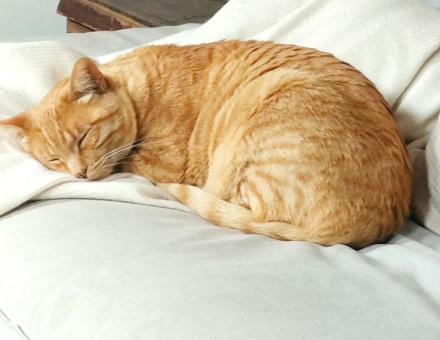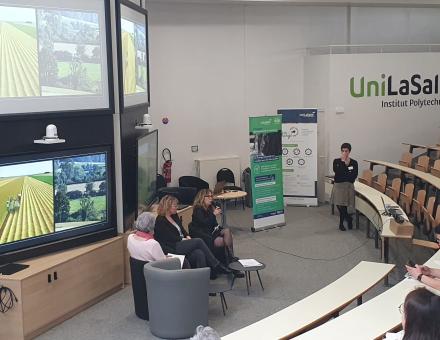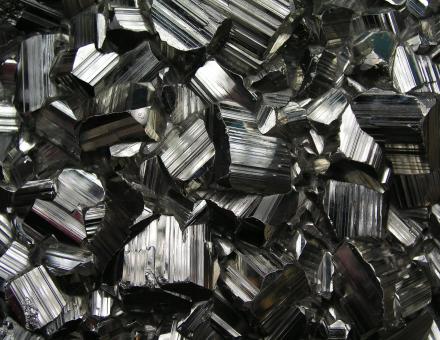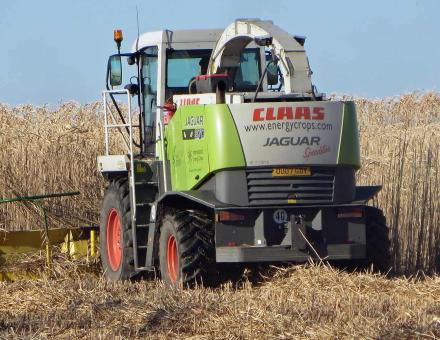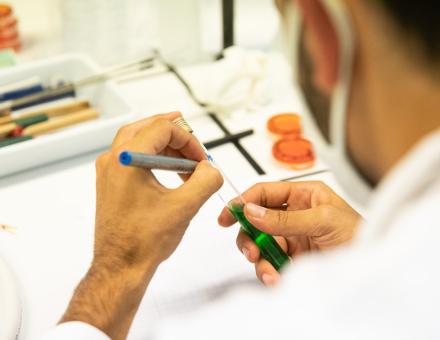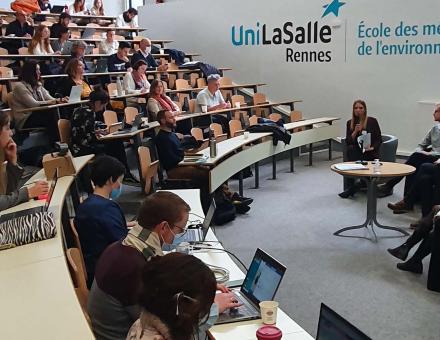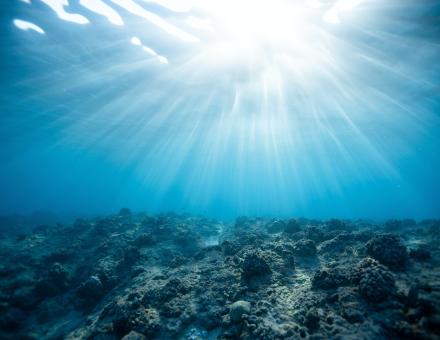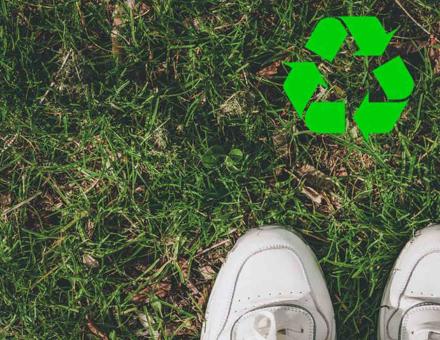One of Cyclann's scientific objectives is to contribute to limiting the impacts and nuisances of waste and its management. The research unit also actively participates in the implementation of circular economy approaches and policies at the territorial level in order to allow the integration of the principles of the societal responsibility of organizations (RSO) and to meet the objectives of sustainable development (ODD).
The scientific project
The Cyclann team is particularly interested in four topics:
- engineering and environmental sciences
- water and effluent quality
- effluent and waste treatment
- environmental assessment
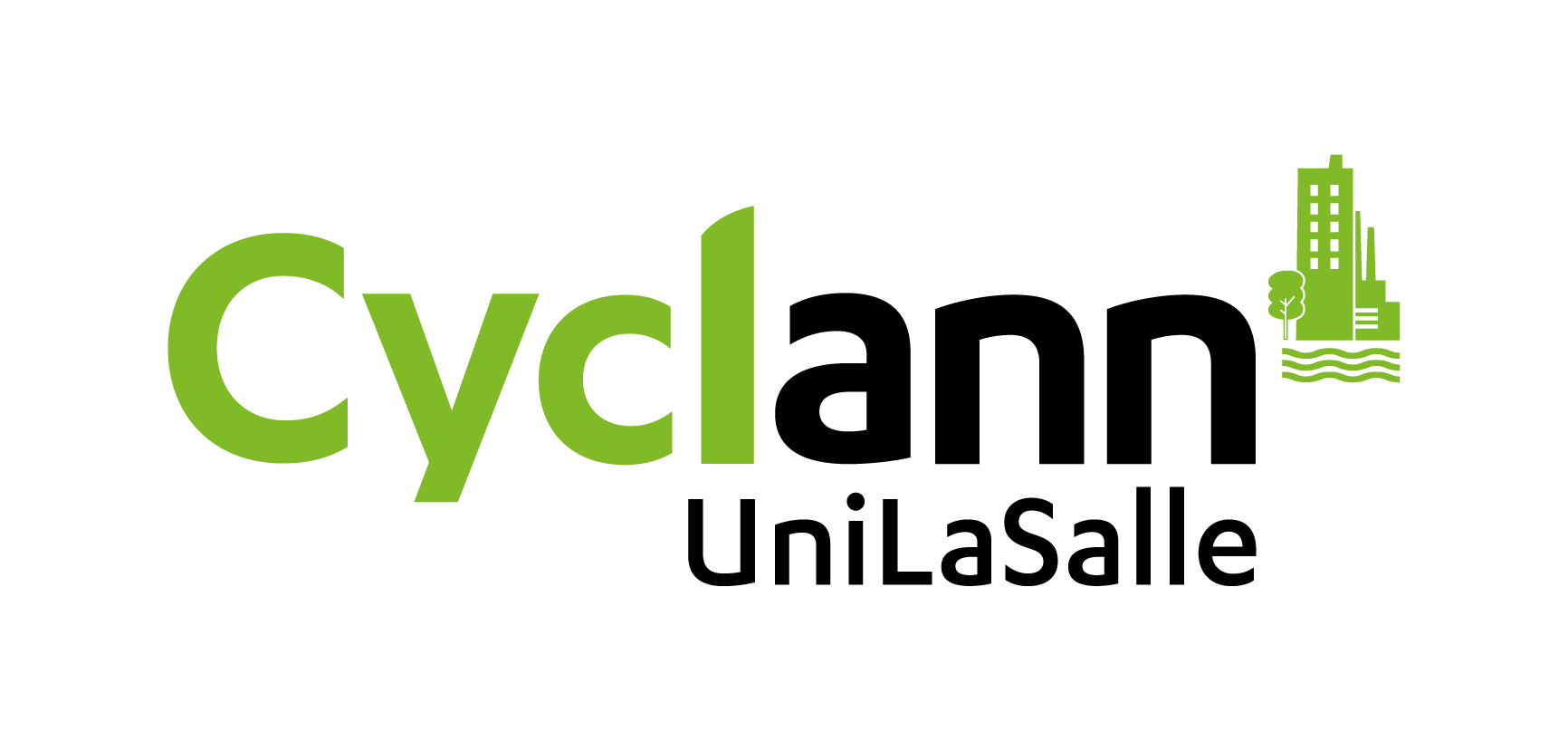
Engineering and Environmental Sciences
The research areas are mainly related to engineering and environmental sciences:
- Water and effluent quality: characterization of organic matter (natural, anthropogenic, particulate, colloidal pollution), indicators, degradation factors...
- Effluent and waste treatment and biological recovery: development and optimization of physico-chemical, electrochemical and biological processes: biostimulation, bioacclimatization, bioethanol production, methane production, platform molecules
- Environmental assessments: development of environmental performance assessment methodologies: integration of LCA software, methodological aspects related to eco-design
- Diagnosis and prospective on the flow of building materials and construction waste; analysis of material flows and stocks (metabolism) for the implementation of circular economy policies or approaches
Water and effluent quality
The team works on this theme in association with the LERES (EHESP). The aim is to study the quality of water and effluents in order to understand phenomena such as the change in water quality in a context of climate change.
The objective is to develop, optimize and control treatment processes (organic matter/anthropic matter discrimination) by characterizing the phenomena of pollution transfer between the different granulometric fractions. The team is therefore working on defining indicators, degradation factors or contributing to the development of monitoring methods based on optical methods.
Effluent and waste treatment
The team works particularly on :
- treatment by bioaugmentation or biostimulation on industrial or synthetic effluents ;
- electrochemical treatment of effluents containing metals and nanoparticles;
- the treatment of gaseous effluents by absorption.
Some works, in particular the treatment of gaseous effluents containing VOCs by absorption, are carried out in collaboration with the ENSCR research laboratory. In the field of biological treatments, the projects aim to develop and optimize treatment processes.
Environmental assessment
Projects in this area aim to implement environmental assessment methods such as life cycle assessment or to propose methodologies to evaluate, for example, the environmental impact of a new treatment process.
The Team
Permanent Cyclann members
Jean-Marie CARIOLET : Doctor in Geography (University of Western Brittany), Mr. Cariolet defended his thesis in 2011 on the risk of marine submersion in Brittany. After a post-doctorate at the University of Leicester (UK) on the mapping of wind-related risks in urban areas, he worked as a teacher-researcher at the Ecole des Ingénieurs de la Ville de Paris (EIVP) for 6 years. His research interests include the spatial dimension of the concept of urban resilience and risks (marine submersion; flooding; air pollution), the adaptation of cities to climate change, and the links between morphology and risks (geomorphology and marine submersions; urban forms and air pollution).
Research topics: territorial resilience, adaptation to climate change, cartography, air pollution, urban morphology
Email : jean-marie.cariolet@unilasalle.fr
See Jean-Marie Cariolet's profile on HAL
Applied Sustainable Development Objectives
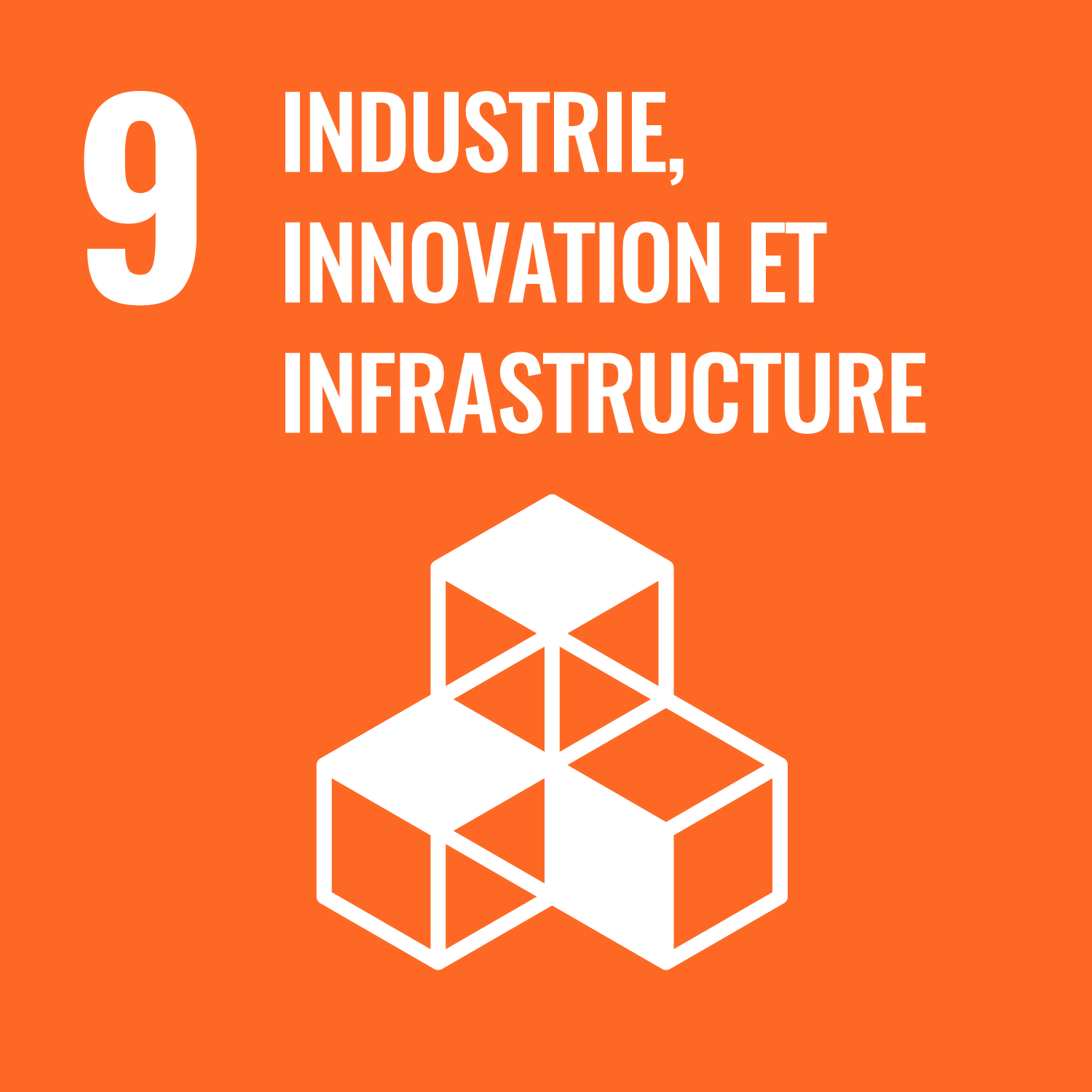
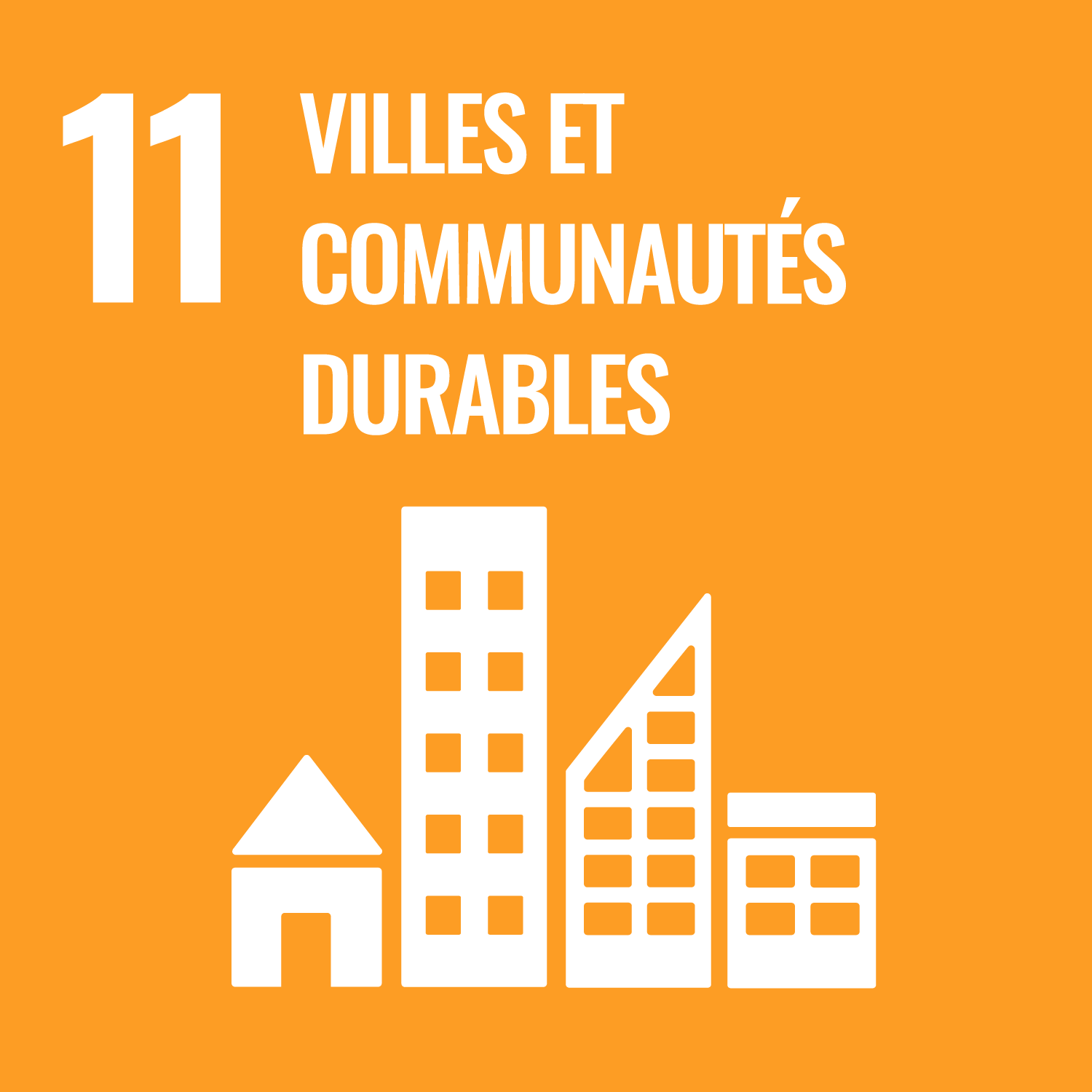
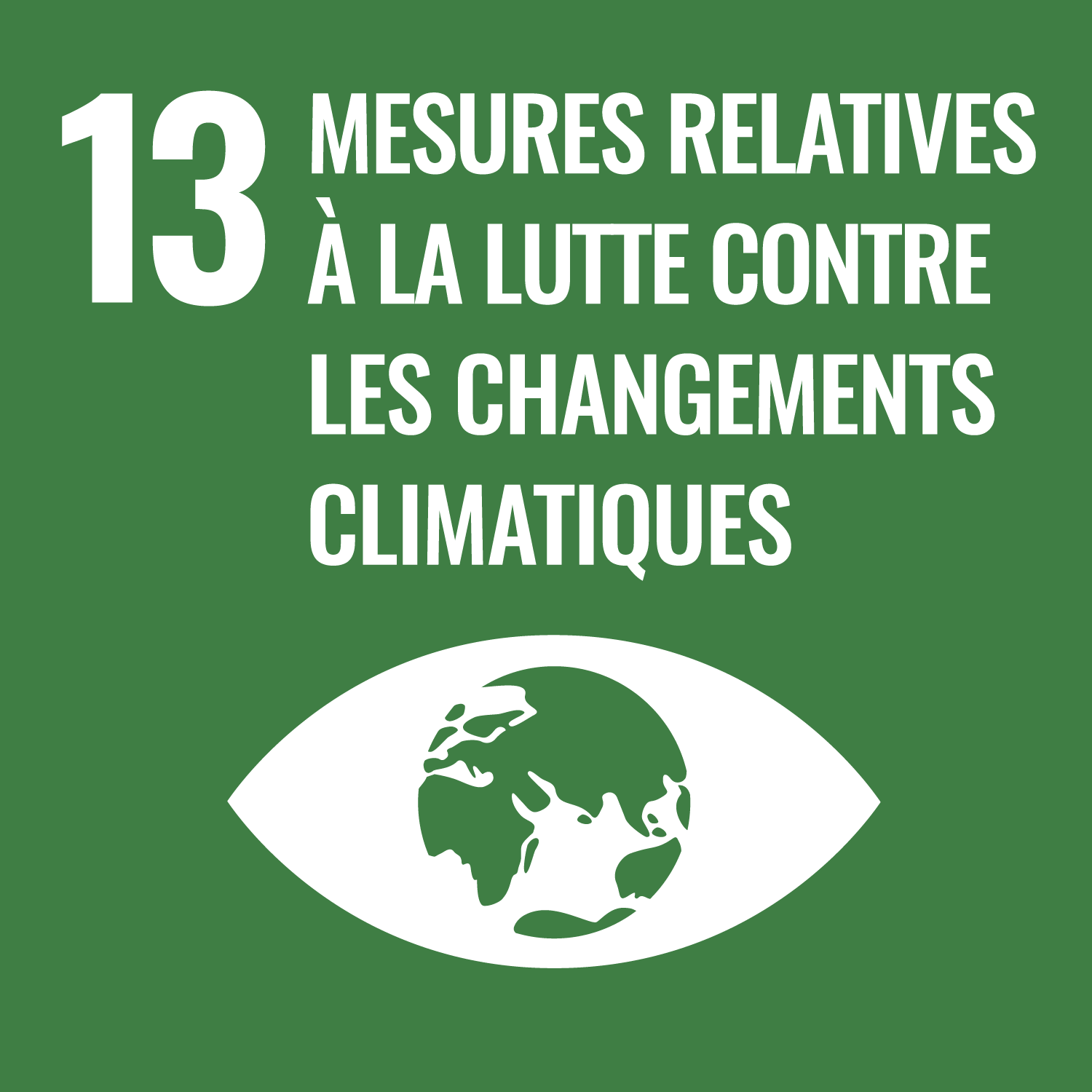
- Territorial resilience
- Adaptation to climate change
- Mapping
- Air pollution
- Urban morphology
Hayet DJELAL: Associate professor at UniLaSalle - EME since 1992, Doctor of Chemistry from the University of Rennes 1, biotechnology speciality and engineer from the National Polytechnic School of Algiers, sanitary engineering option.
Hayet Djelal was coordinator of the Research and Projects from 2009 to 2011 and responsible for engineering works in the last year of the engineering cycle. Specialized in the field of biological treatment of water and waste, she is a part-time research associate of the Chemistry and Process Engineering team of the Ecole Nationale Supérieure de Chimie de Rennes.
Research topics: Biological treatment of effluents, methanization, industrial effluents (leachates, effluents from agro-food activities, organic waste ...), biomass valorization.
Hayet Djelal defended and validated her Habilitation to direct research on May 12, 2017. Her work was on "Intensification of effluent treatment processes by bio-augmentation or combined processes - valorization of biomass. "
Email: hayet.djelal@unilasalle.fr
See Hayet Djelal's profile on HAL
Applied Sustainable Development Objectives
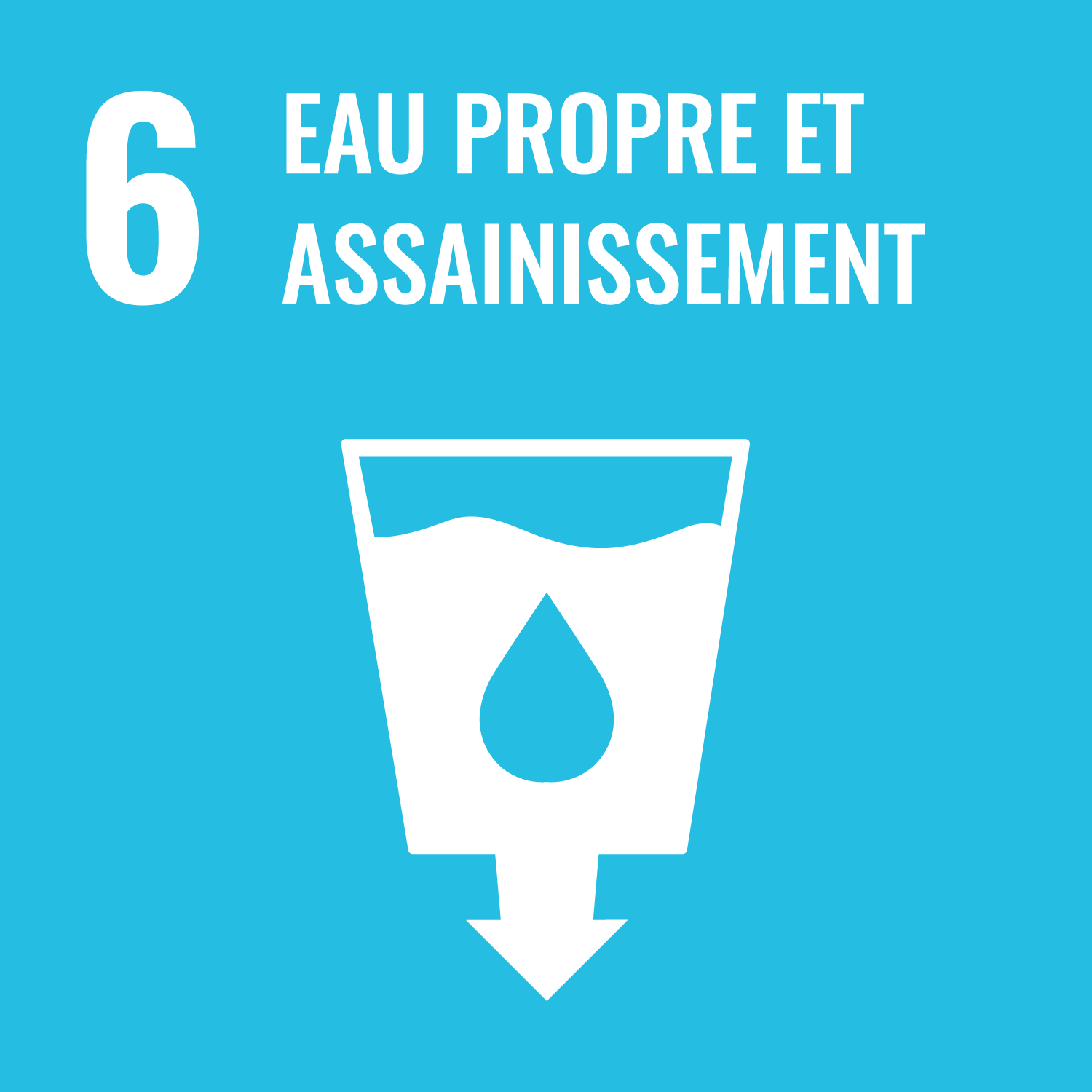
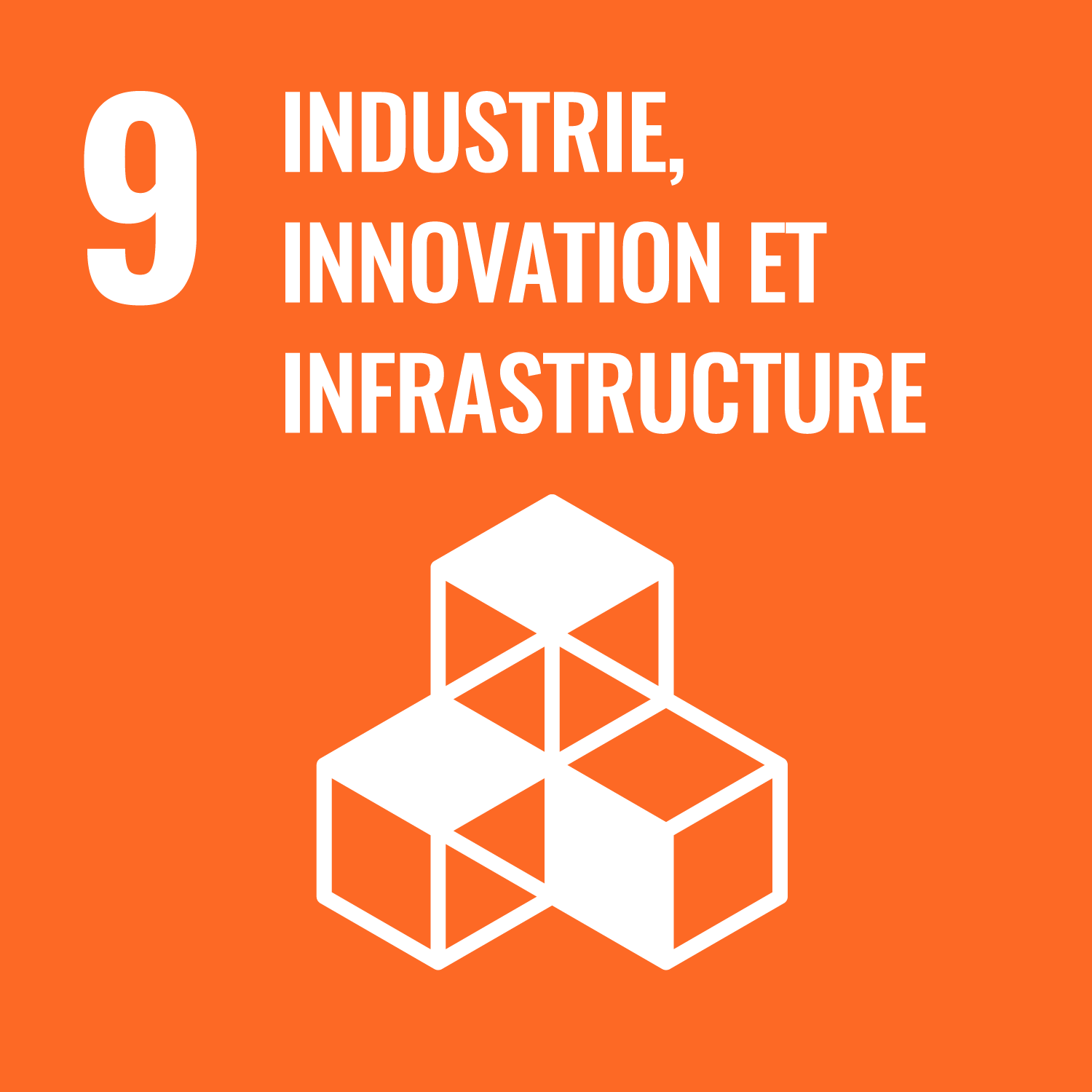
- Water treatment
- Biotreatment, physico-chemical treatment
- Advanced biological treatment processes
- Biovalorisation (biomass)
- Aerobic fermentation
- Anaerobic digestion
- Innovation and transfer
Frédéric EBNER,Doctor in Geography (University of Nantes), Mr. Ebner defended his thesis in 2017 on the vulnerability of coasts to oil pollution. He then gained experience on the realization of environmental studies in ecology and urban planning consultancies. He has a transversal vision of development (intersection of biodiversity, water management, energy, waste, mobility and different regulatory approaches). His research topics include ecology, resilience and environmental law.
Research topics: biodiversity, resilience, urban ecology, environmental law
Email : Frederic.EBNER@unilasalle.fr
See Frédéric Ebner's profile on HAL
Applied Sustainable Development Objectives
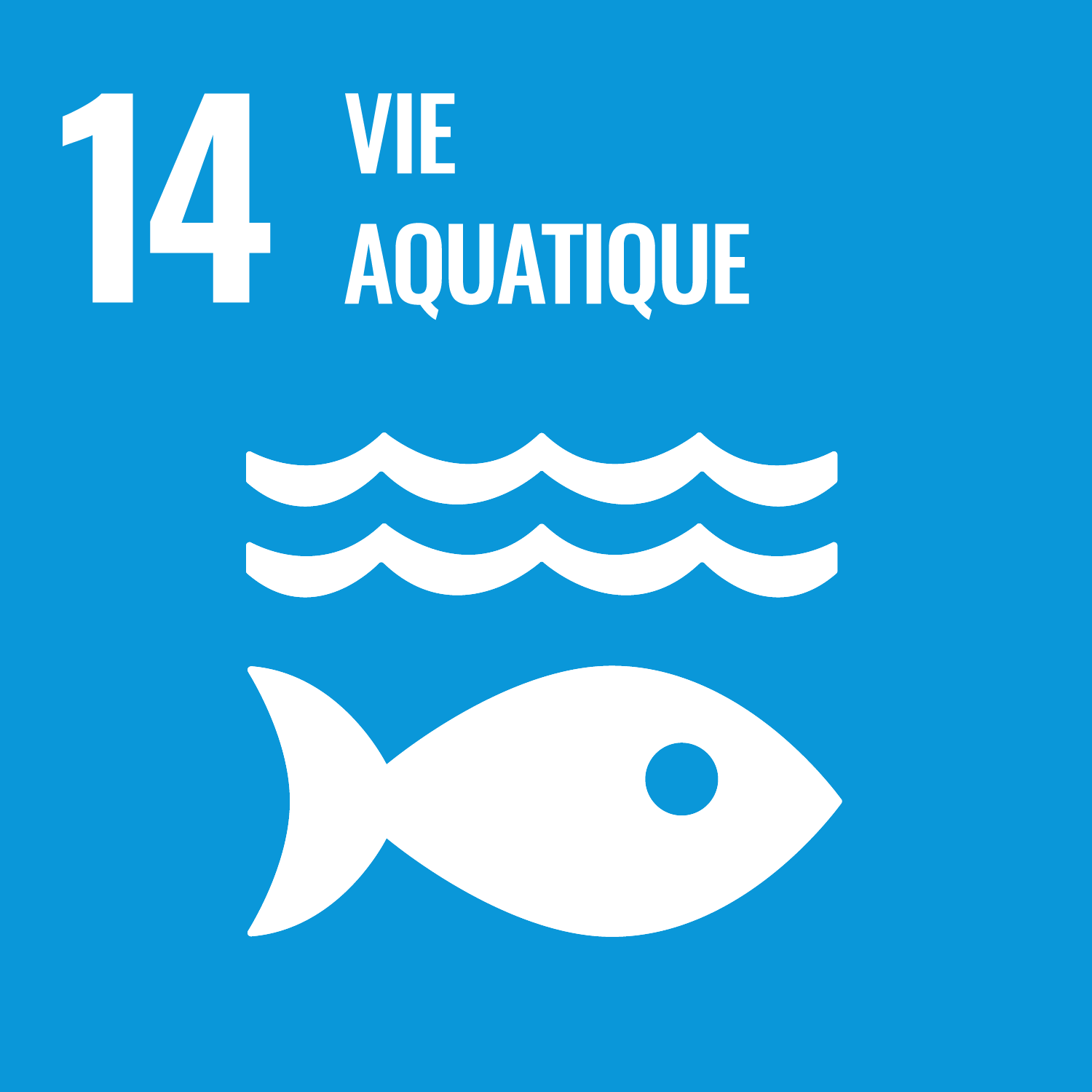
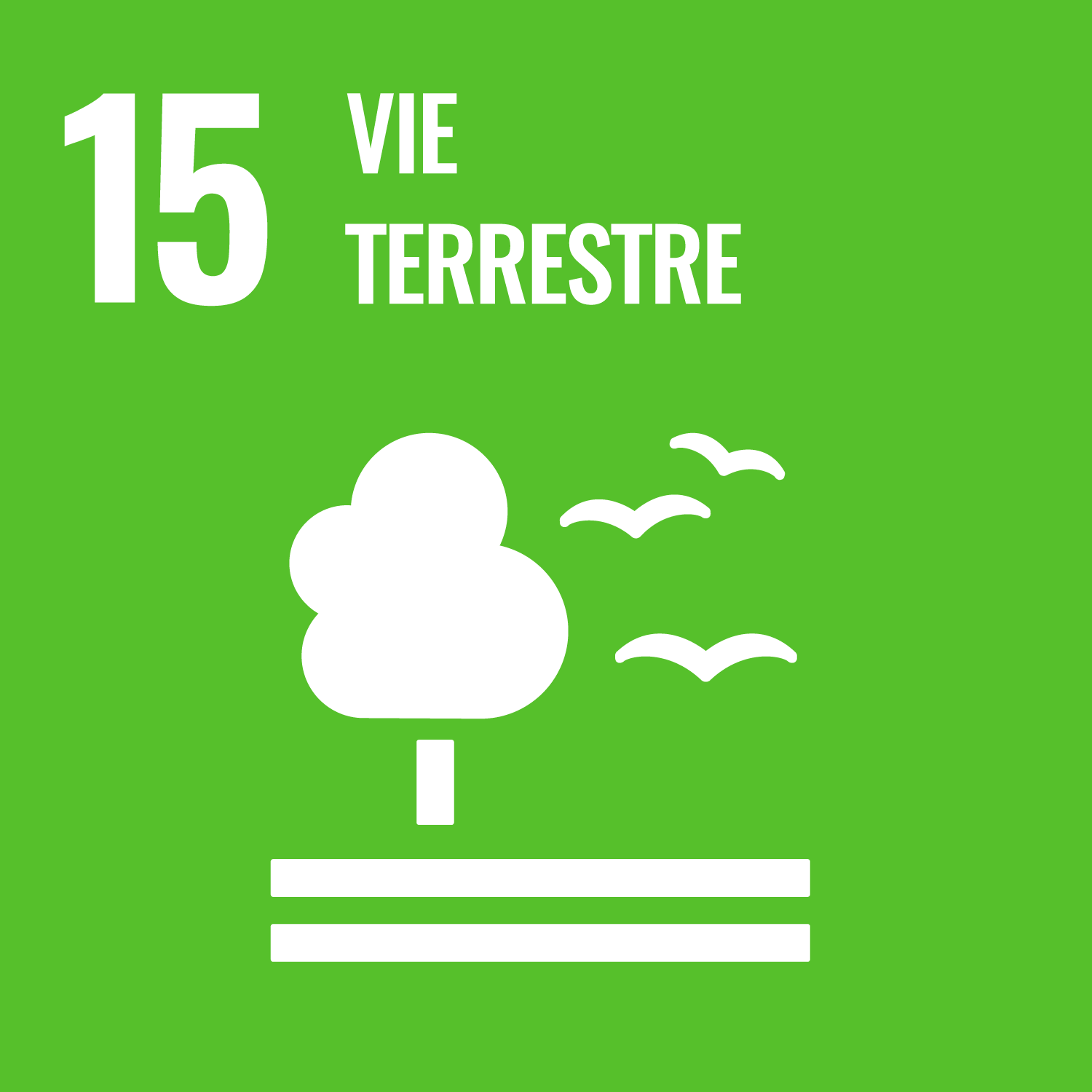
- Biodiversity
- Urban ecology
Lydia FRYDA, Teacher-researcher at UniLaSalle Rennes | School of Environmental Professions since 2021, graduated in Mechanical Engineering and holds a PhD in Process Engineering from the National Technical University of Athens ( NTUA) on aspects of biomass gasification for energy production.
Lydia Fryda is an expert in process development for the valorization of organic residues into bioenergy and biochar. She has acquired international experience in R&D, coordination of national and European projects during her employment in the ECN and then TNO research centers until 2020. She joined Uni LaSalle EME in the European Interreg THREEC project as a research fellow and then as a teacher-researcher.
Teaching: Heat transfer, Thermodynamic equilibrium, Thermal machines
Research topics: Valorization of regional biomass for higher value products: biochar, energy, chemicals and fuels, with low environmental impact. Activation and functionalization of biochar with low environmental impact processes. Application of biochar to treat wastewater and stormwater. Life cycle and carbon footprint analysis of bio-based processes and products.
Email: lydia.fryda@unilasalle.fr
See Lydia Fryda's profile on HAL
Applied Sustainable Development Objectives
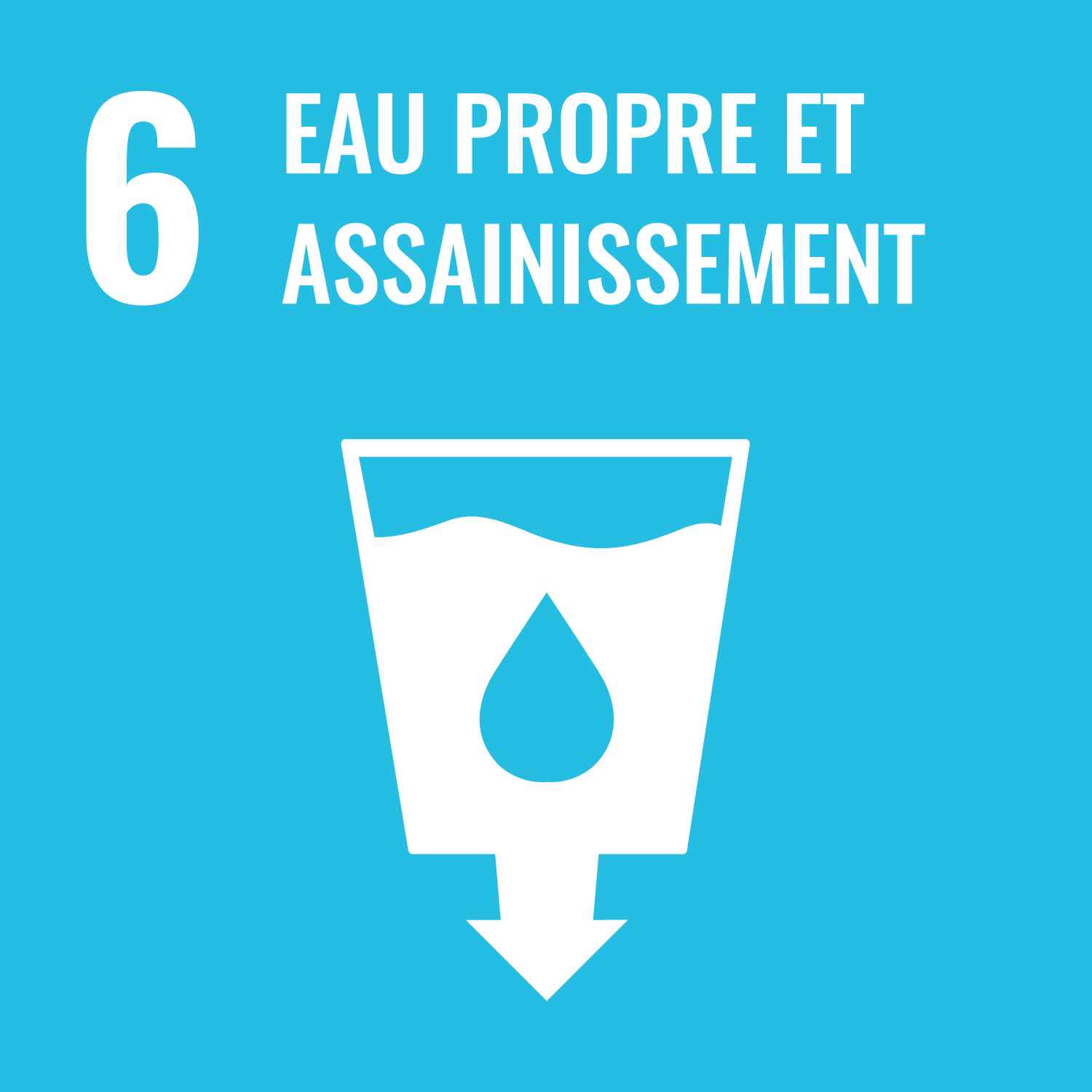
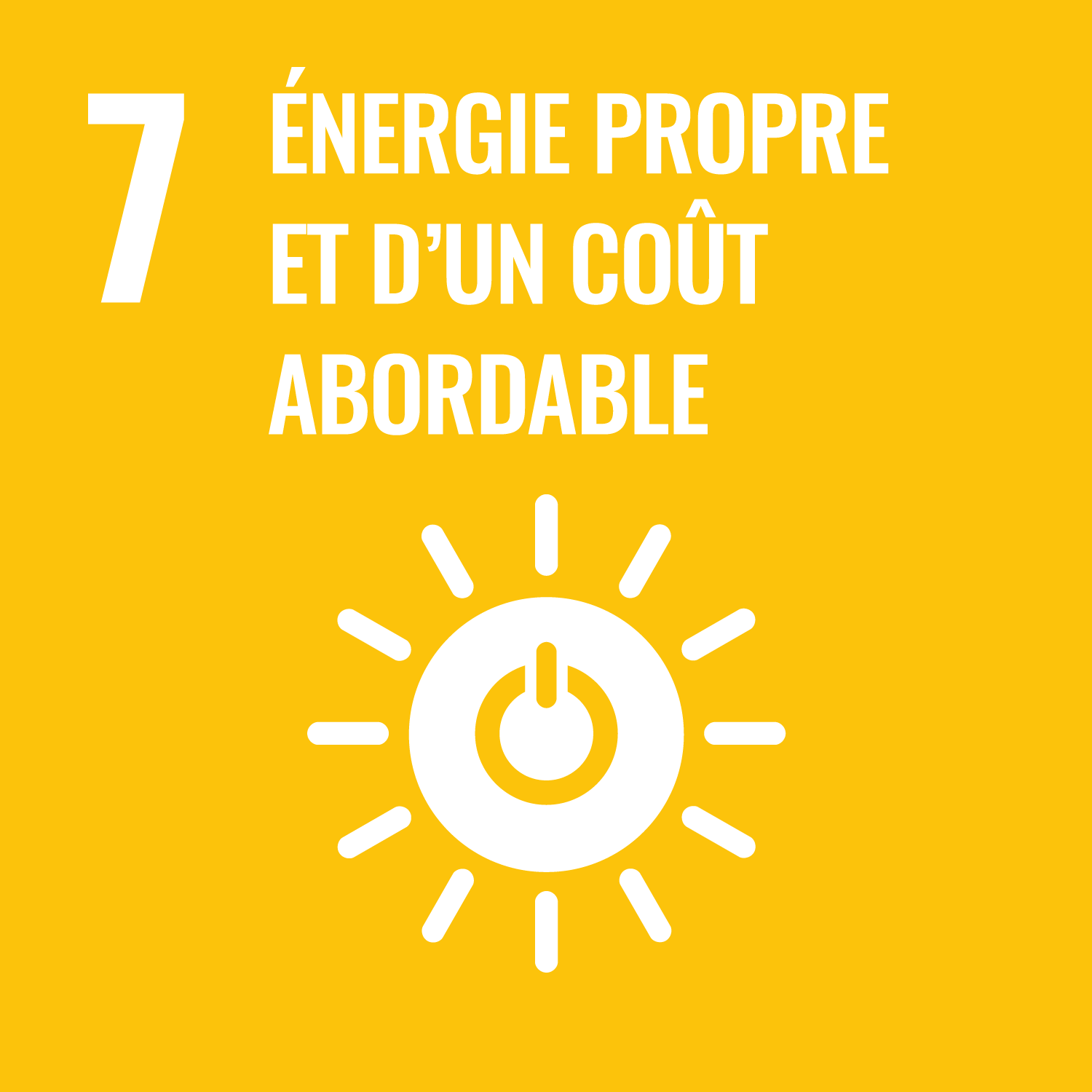
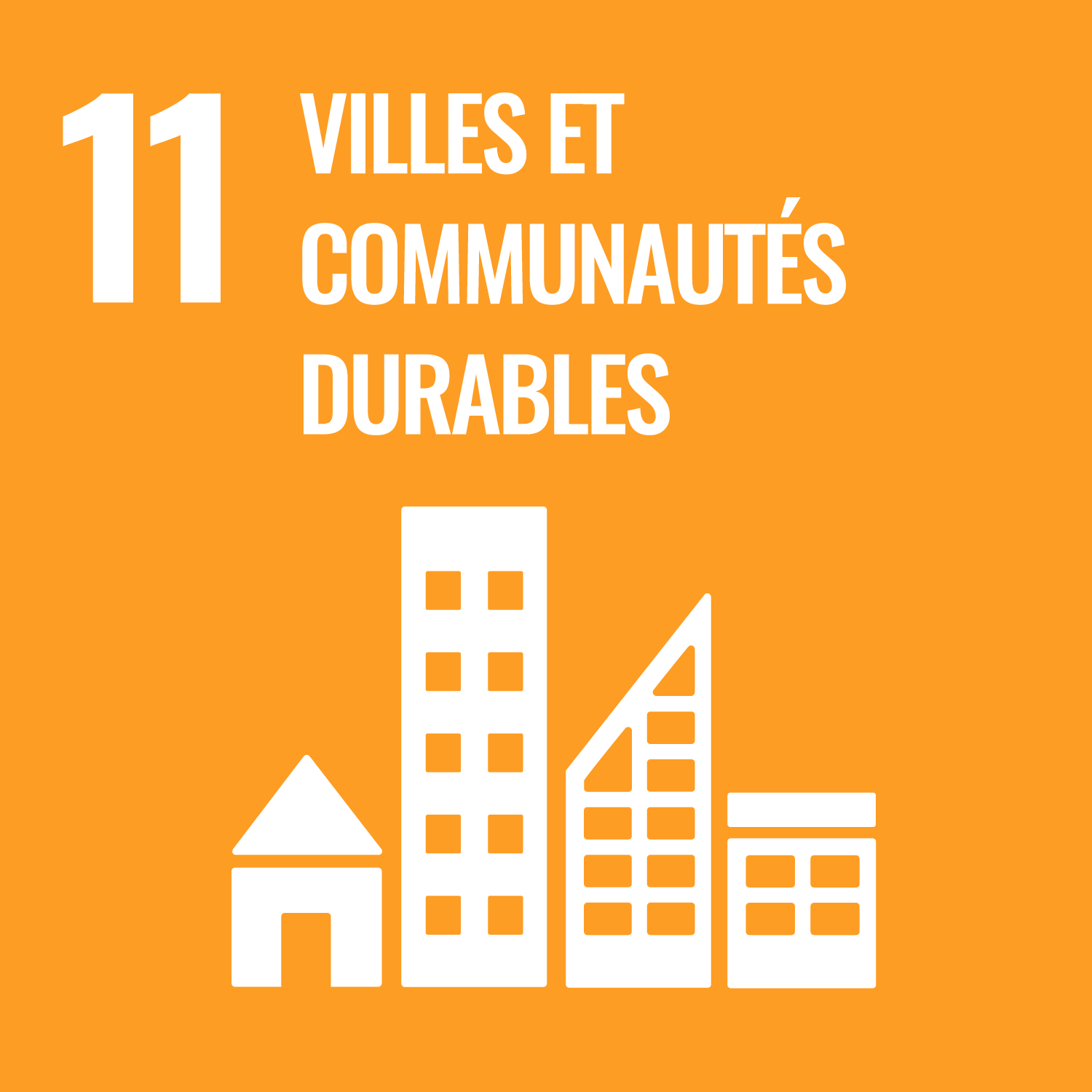
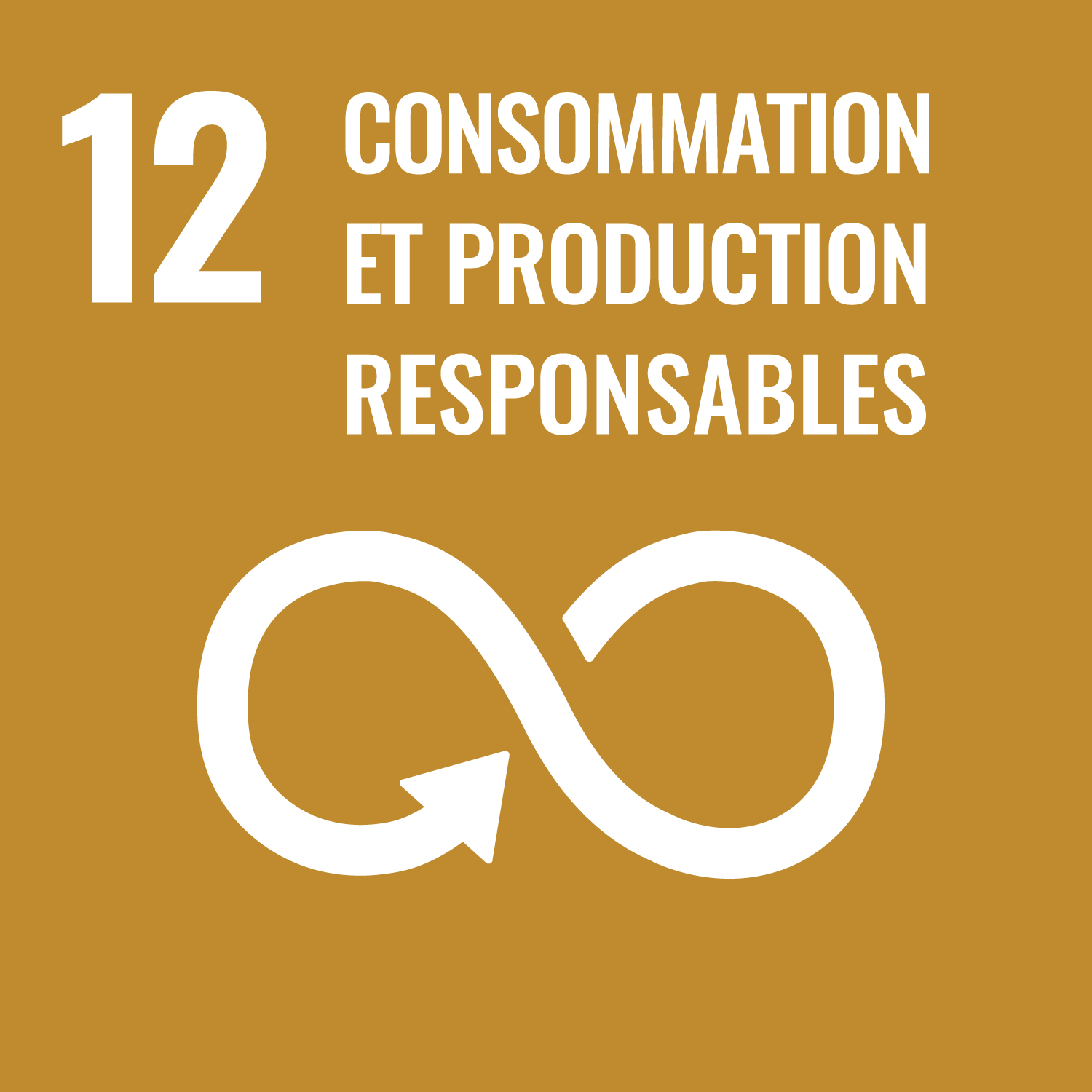
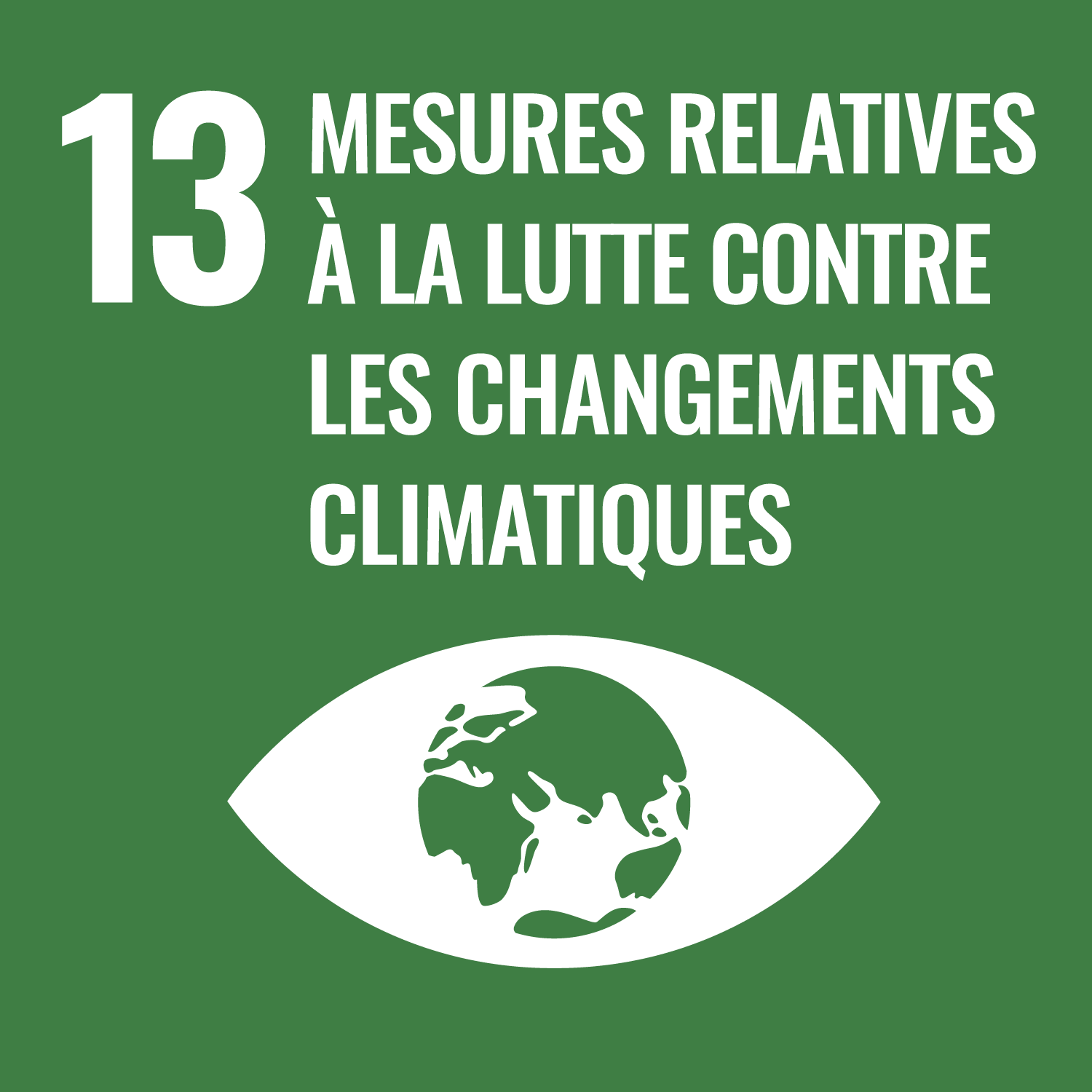
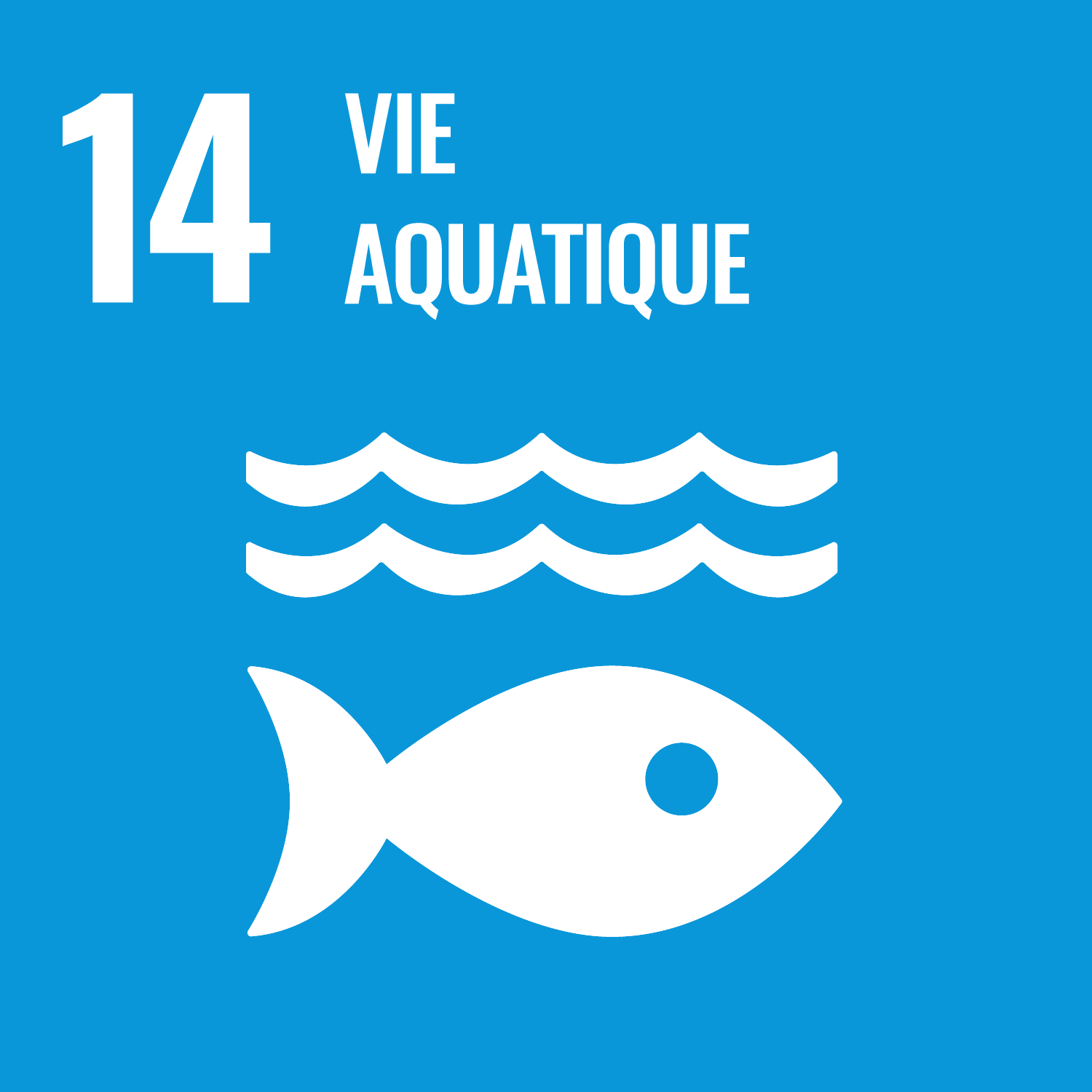
- Biomass
- Biochar
- Energy
- Environmental impact
- Wastewater
- Runoff water
- Bio-based products
- Life Cycle Assessment (LCA)
- Carbon footprint of processes
Paula HIGUERA :
Research lecturer at UniLaSalle since April 2023, PhD in architecture and urban studies, specializing in environmental assessment.
Paula HIGUERA completed her doctoral thesis (Université Gustave Eiffel) on the evaluation of the environmental performance of different earth construction techniques using a parameterized life cycle assessment (LCA) model.
During her doctoral training, she was responsible for the TD course on life cycle assessment for the Master in Environmental, Energy and Transport Economics at the University of Nantes. She has also coached Master's students in the preparation of their professional projects.
She is involved in the PNTERRE (national project on flooded earth) in the environmental assessment field. The aim is to provide industry professionals with the tools they need to meet regulatory requirements in terms of the environmental performance of raw earth construction products.
E mail : paula.higuera@unilasalle.fr
Research topics: sustainable construction, life cycle assessment (LCA), LCA tools: Brightway2 and OpenLCA.
Julia JOUAN :
Research professor at UniLaSalle since September 2022, Agronomist and Doctor of Economics.
Julia JOUAN is a graduate of Institut Agro Rennes-Angers (ex Agrocampus-Ouest, ENSAR). She completed her thesis on crop-livestock technical complementarities by modeling exchanges of legumes and effluents between farms in Western France.
She then completed two post-doctorates: the first on the SEGAE serious game to facilitate learning about agroecology, and the second on the "Cultiver et protéger autrement" priority research program. She was also a teacher-researcher in economics at the Institut Agro in 2021/2022.
Research topics: circular economy, resilience, effluent management, territorial metabolism
E mail : julia.jouan@unilasalle.fr
Applied Sustainable Development Objectives
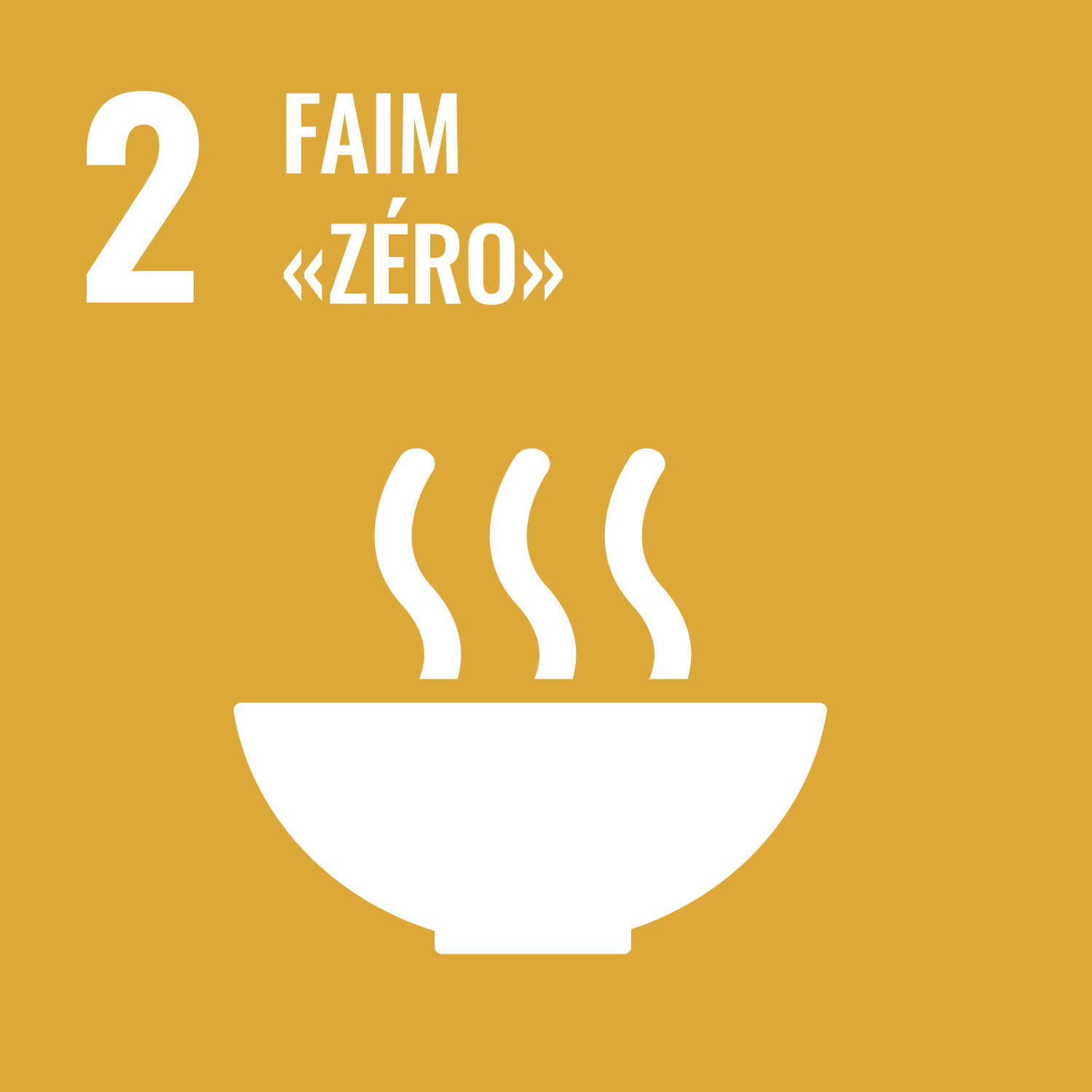
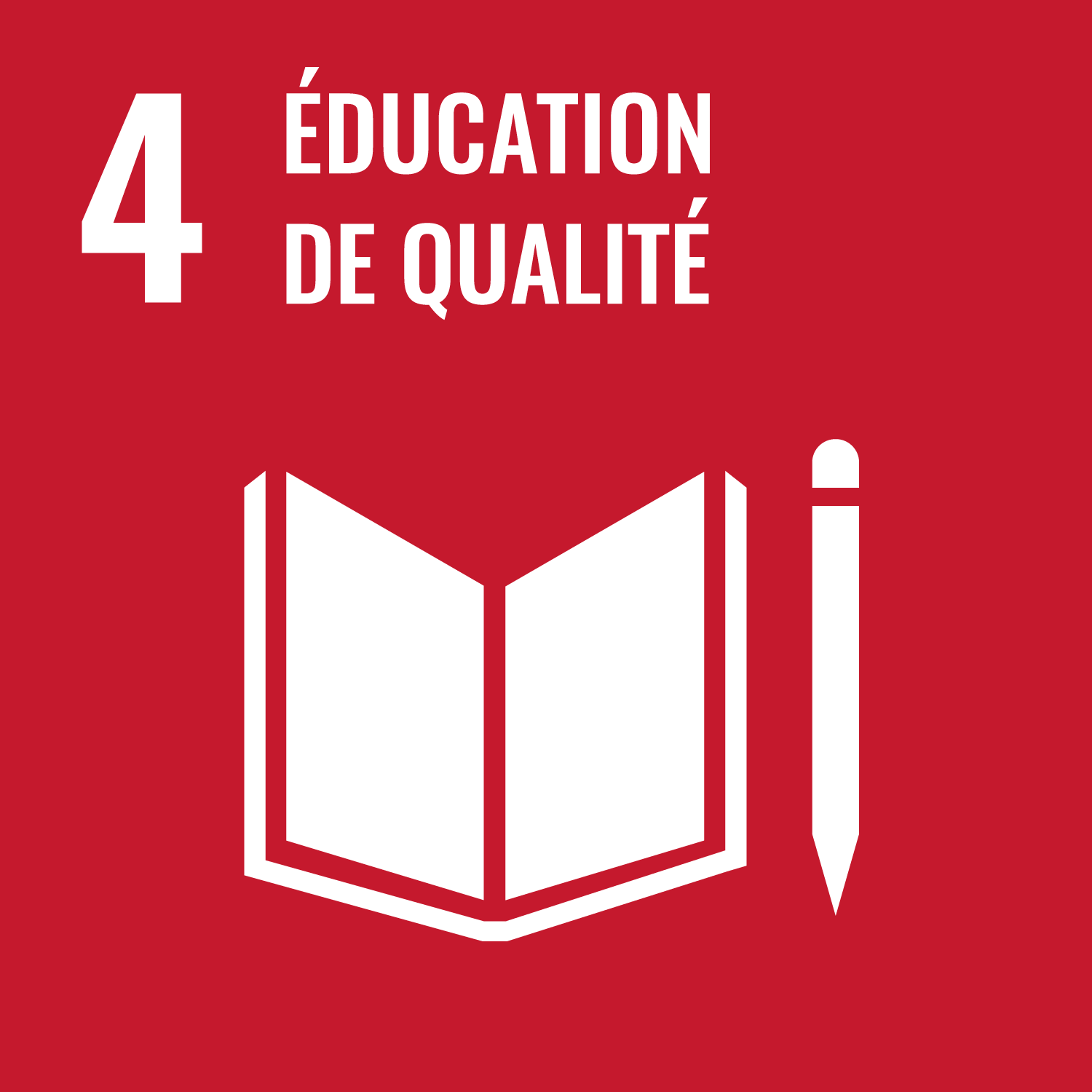
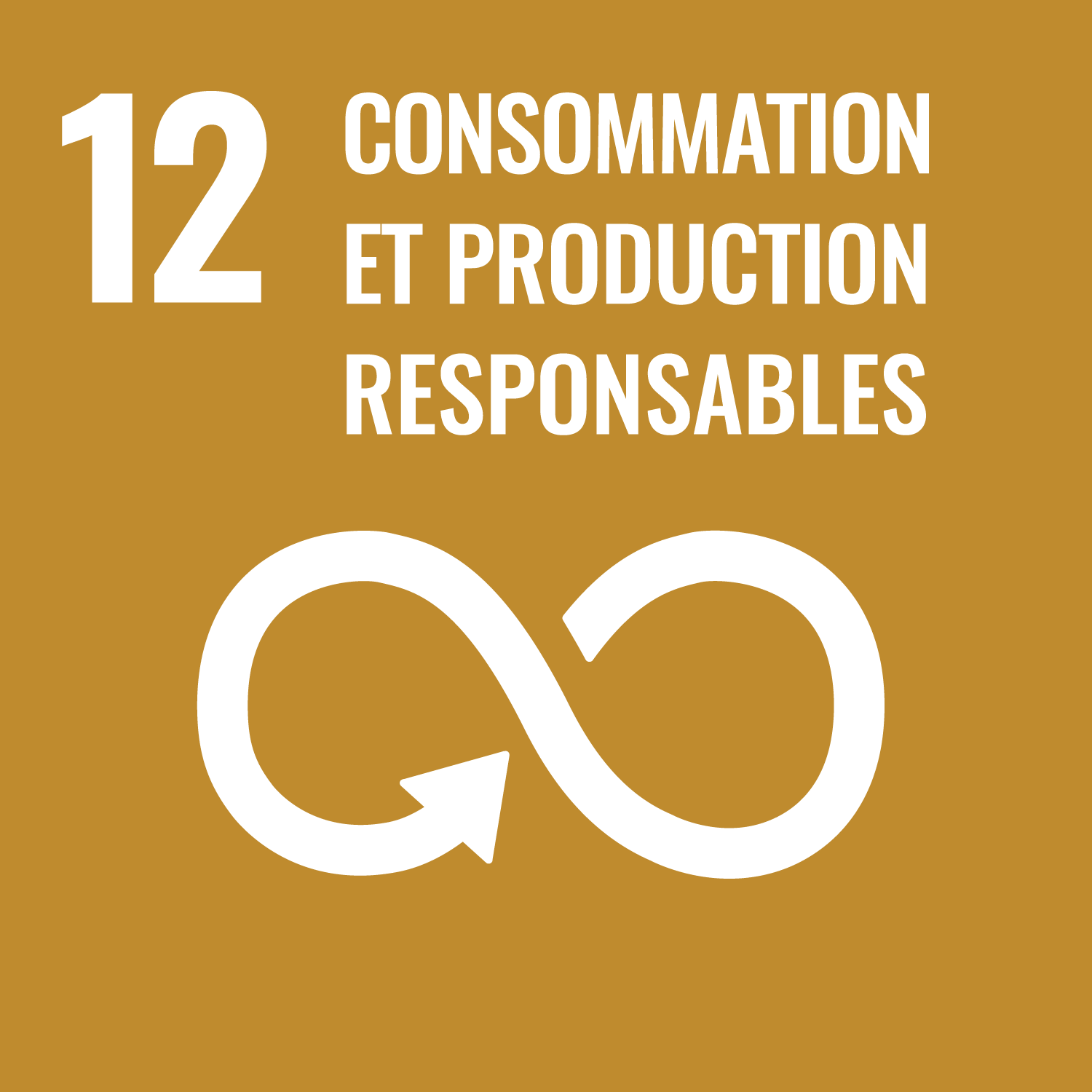
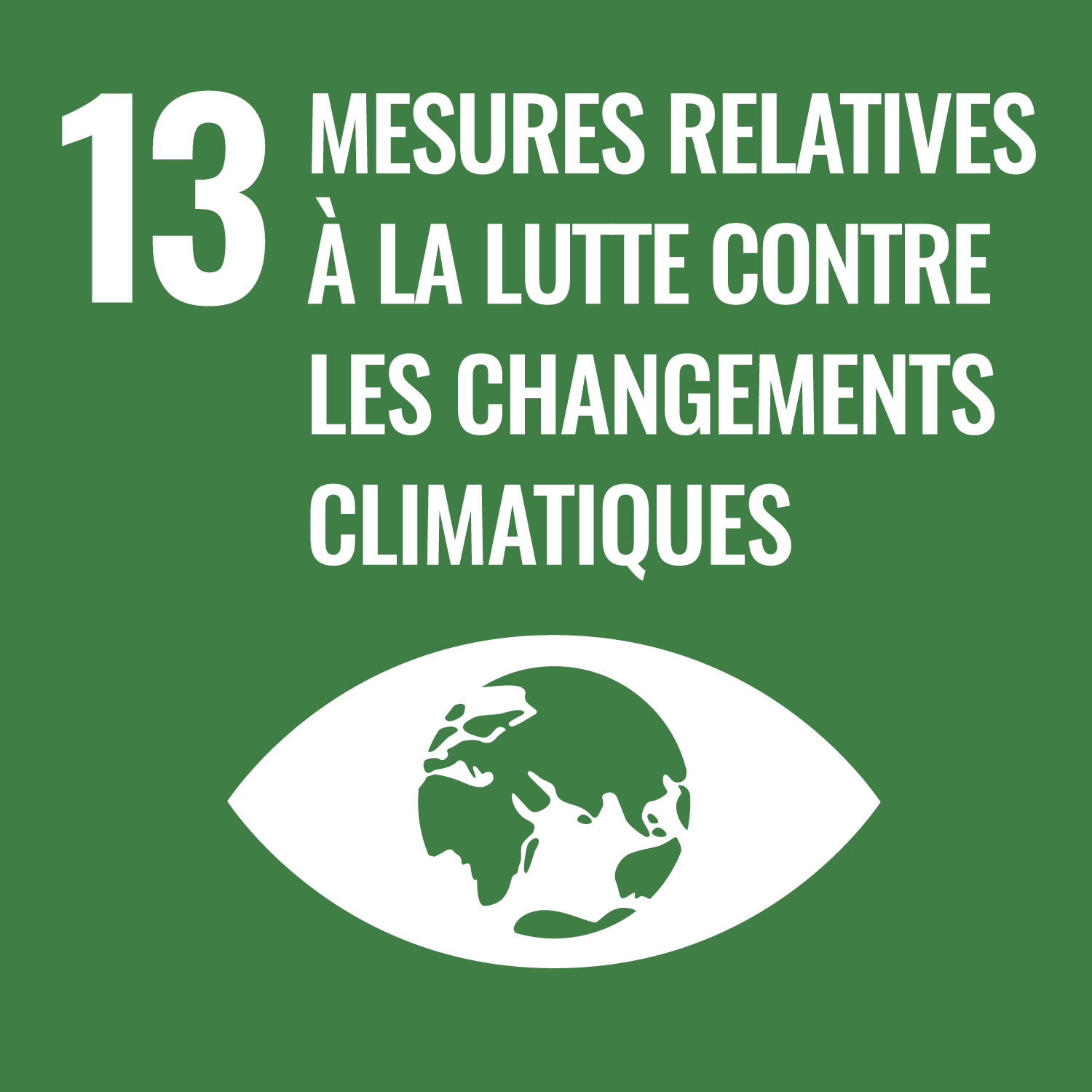
Abdoulaye KANE: Teacher-researcher at UniLaSalle Rennes | École des métiers de l'environnement since 2012, PhD in Process and Product Engineering from the Institut National Polytechnique de Lorraine (INPL) and Research Master in Process and Product Engineering from the University of Paris 13.
In 2010, he defended his PhD thesis in Process and Product Engineering at the Laboratoire Réactions et Génie des Procédés- ENSIC Nancy (UMR 7274) on the study and design of a micro-structured distillation process allowing to intensify the heat and material transfers. This thesis has shown that the process intensification approach can allow a more rational use of energy and that it is closely related to equipment costs.
He was also a temporary attaché for higher education and research at the INP Lorraine and at the Ecole Nationale Supérieure de Chimie de Rennes. As a post-doctoral fellow at ENSCR (from 2011 to 2012), he worked on the PAMPAC Program: VOC Adsorption Process Modulated by Heat Pump, financed by ADEME and ENSCR in partnership with CNAM-CIAT and Prosim. He was an associate researcher of the Chemistry and Process Engineering team of the Ecole Nationale Supérieure de Chimie de Rennes between 2012 and 2018.
Research topics: Process intensification (via heat and mass transfer), process sizing, design and optimization, adsorption processes - Gas/Liquid contactors, adsorption on activated carbon - Modeling of adsorption processes, treatment of micropollution, advanced oxidation processes (Photocatalysis (UV/TiO2), ozonation...)
Email : abdoulaye.kane@unilasalle.fr
Applied Sustainable Development Objectives
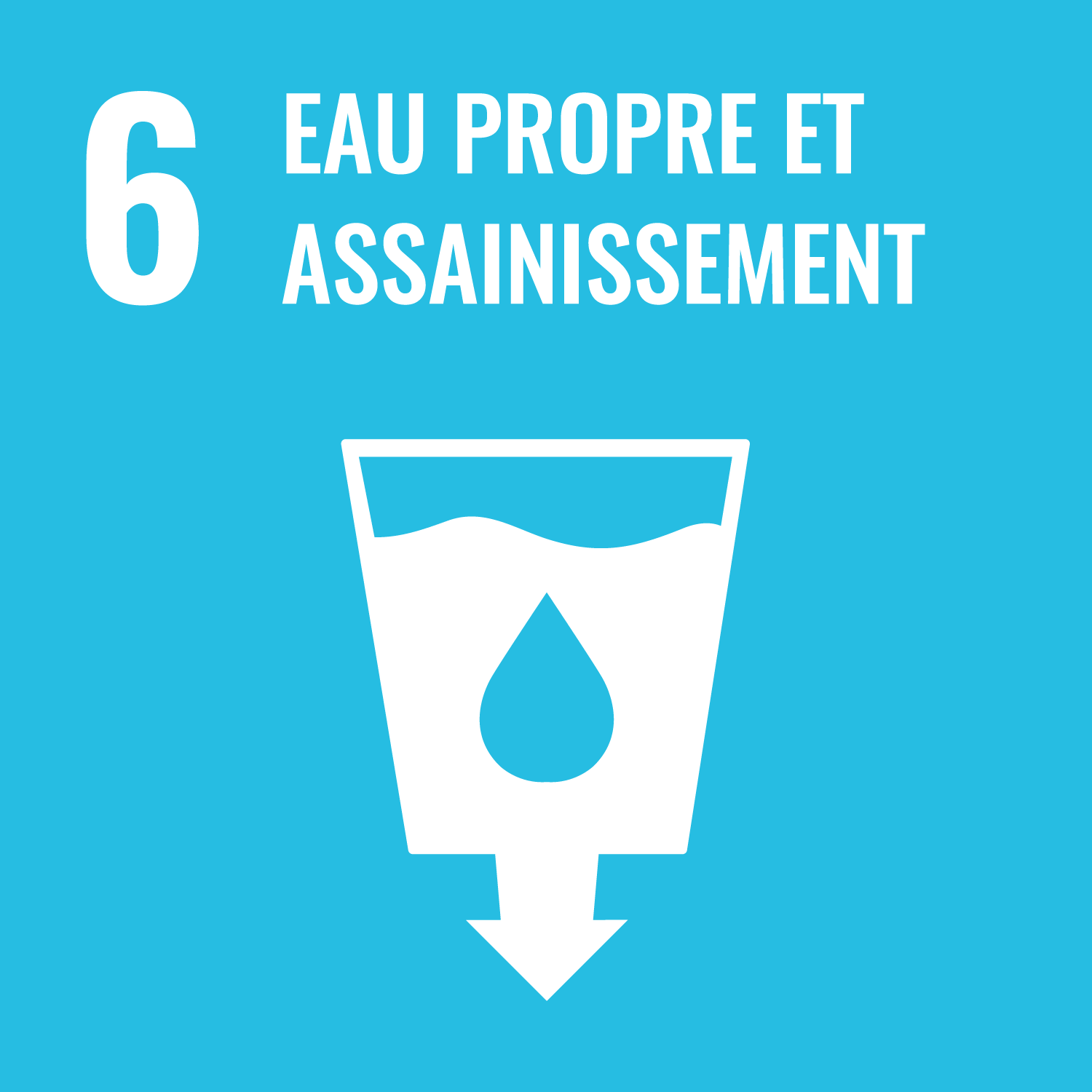
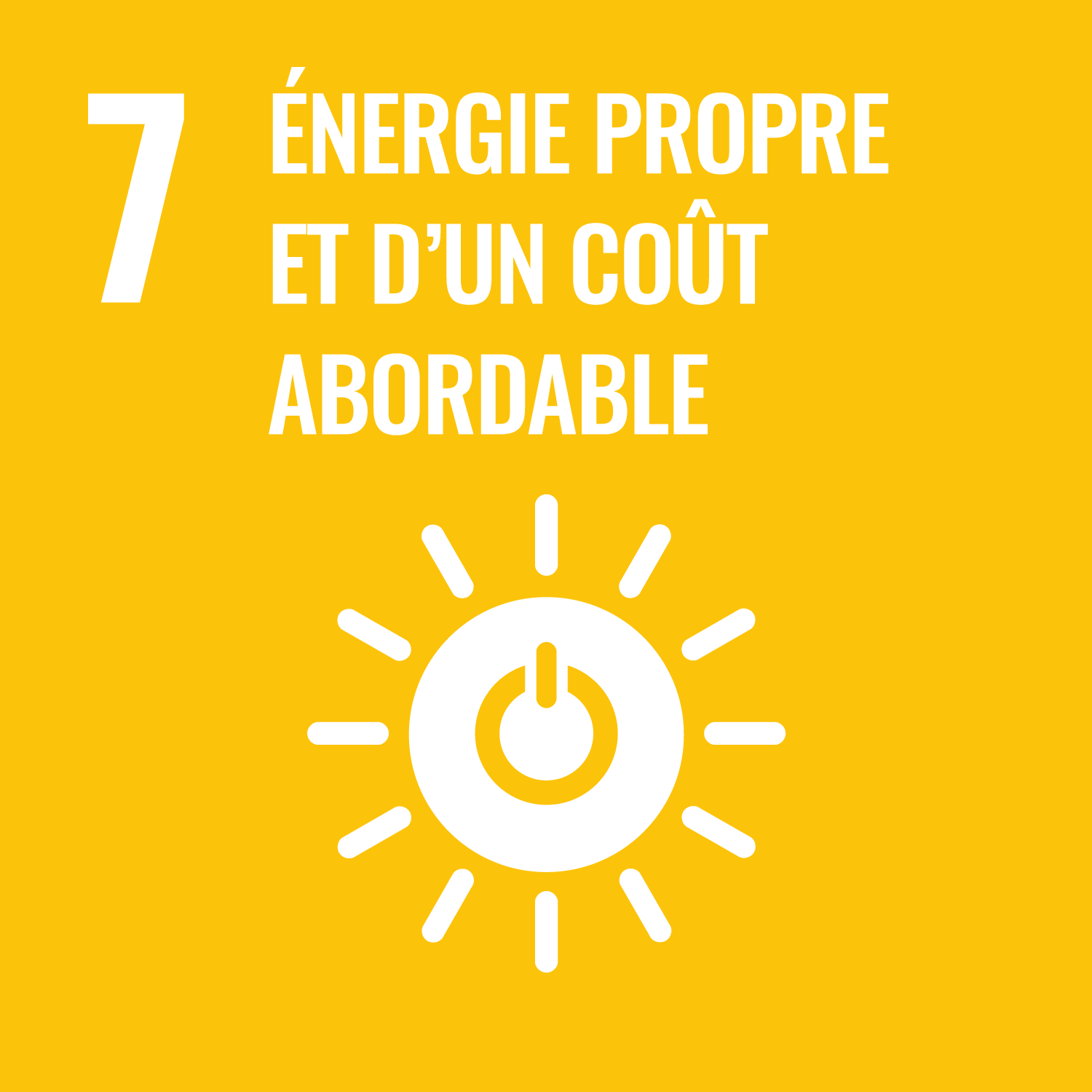
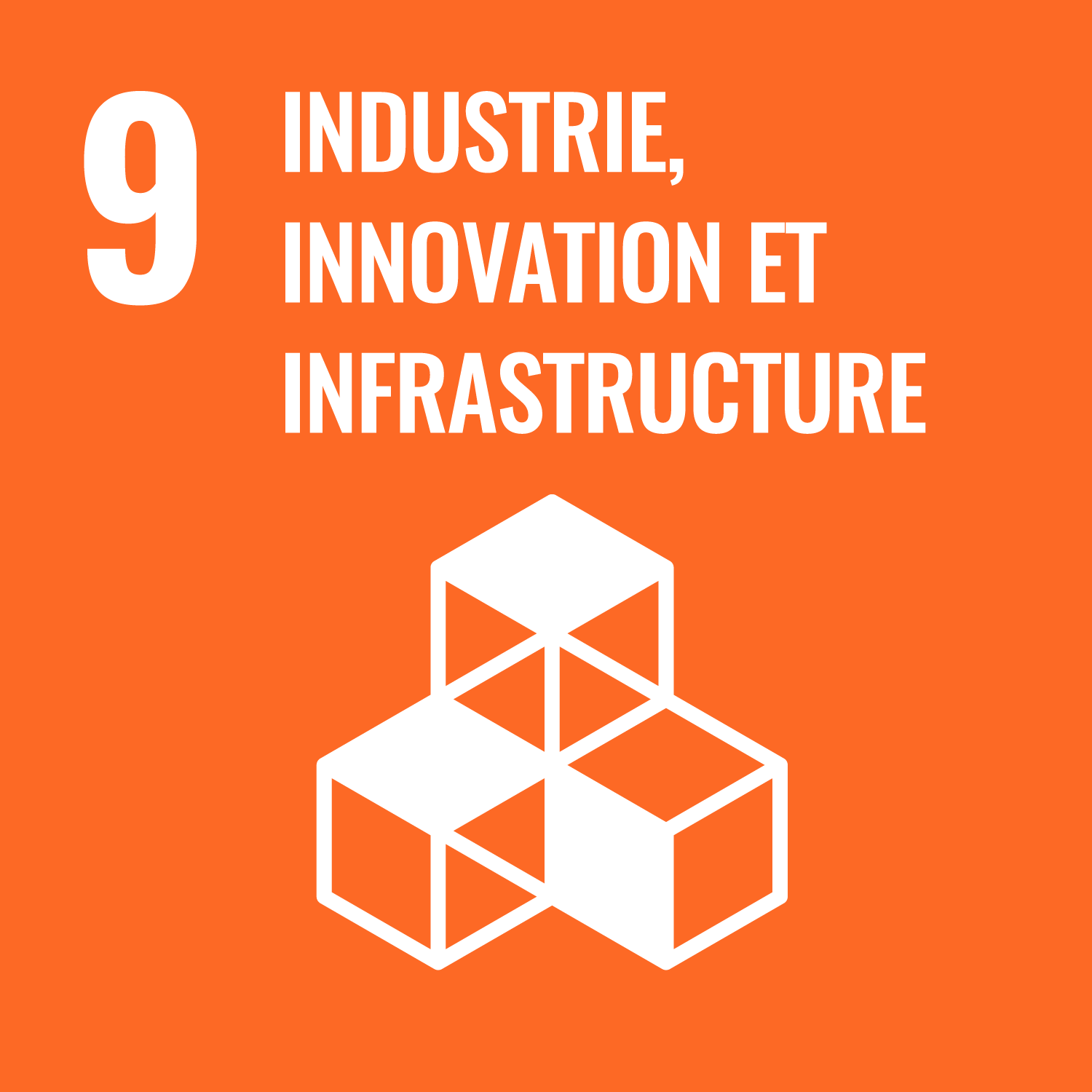
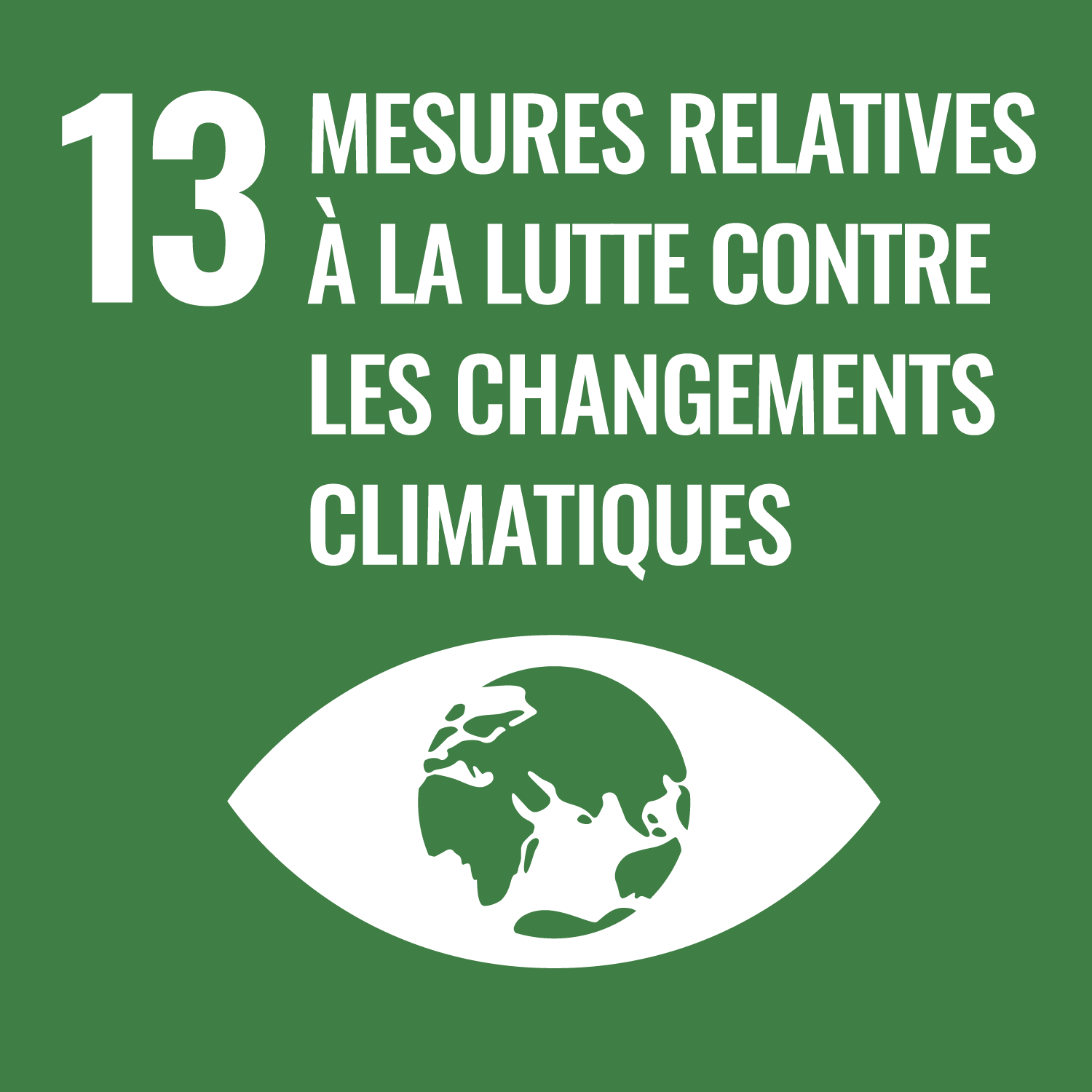
- Water treatment
- Innovation and transfer
- Process intensification
- Process design, sizing and optimization
Romain LIGNY, Lecturer and researcher in chemistry for the environment since 2021
Romain LIGNY, PhD in Molecular and Macromolecular Chemistry (ISCR, UMR 6228), defended his thesis in 2018 on the synthesis of new sequence-controlled (co)polyesters by stereoselective polymerization catalysis. After a year as a temporary education (IUT Le Mans) and research attaché (IMMM, UMR 6283).
Teaching: Chemistry in general (organic, organometallic, atomistic, mineral, polymers), analytical sciences (spectrometry).
Research topics: Synthesis of target molecules in organic and organometallic chemistry, polymerization catalyst design, spectro(photo)metric characterization processes, polymer chemistry.
Email : romain.ligny@unilasalle.fr
See Romain Ligny's profile on HAL
Applied Sustainable Development Objectives
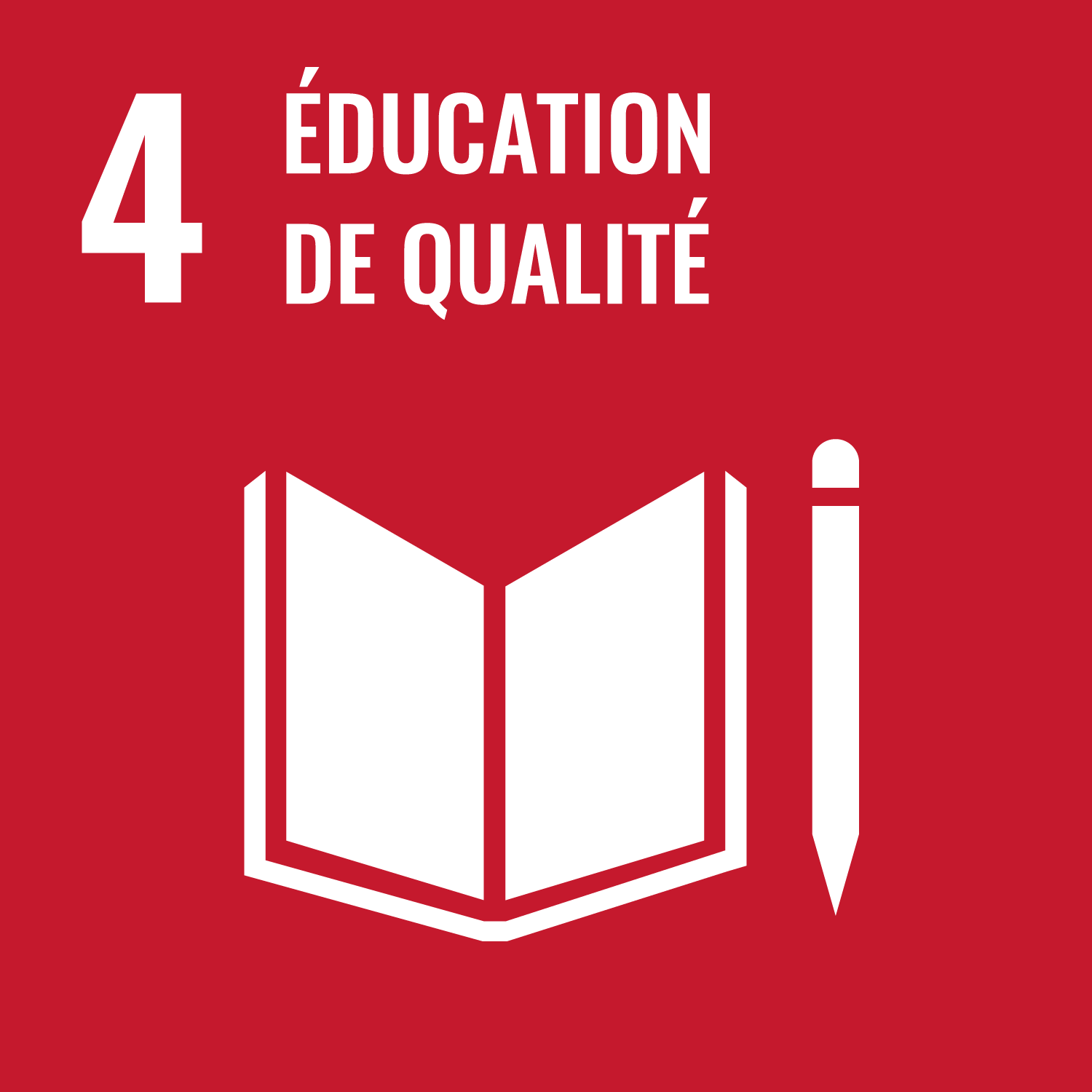
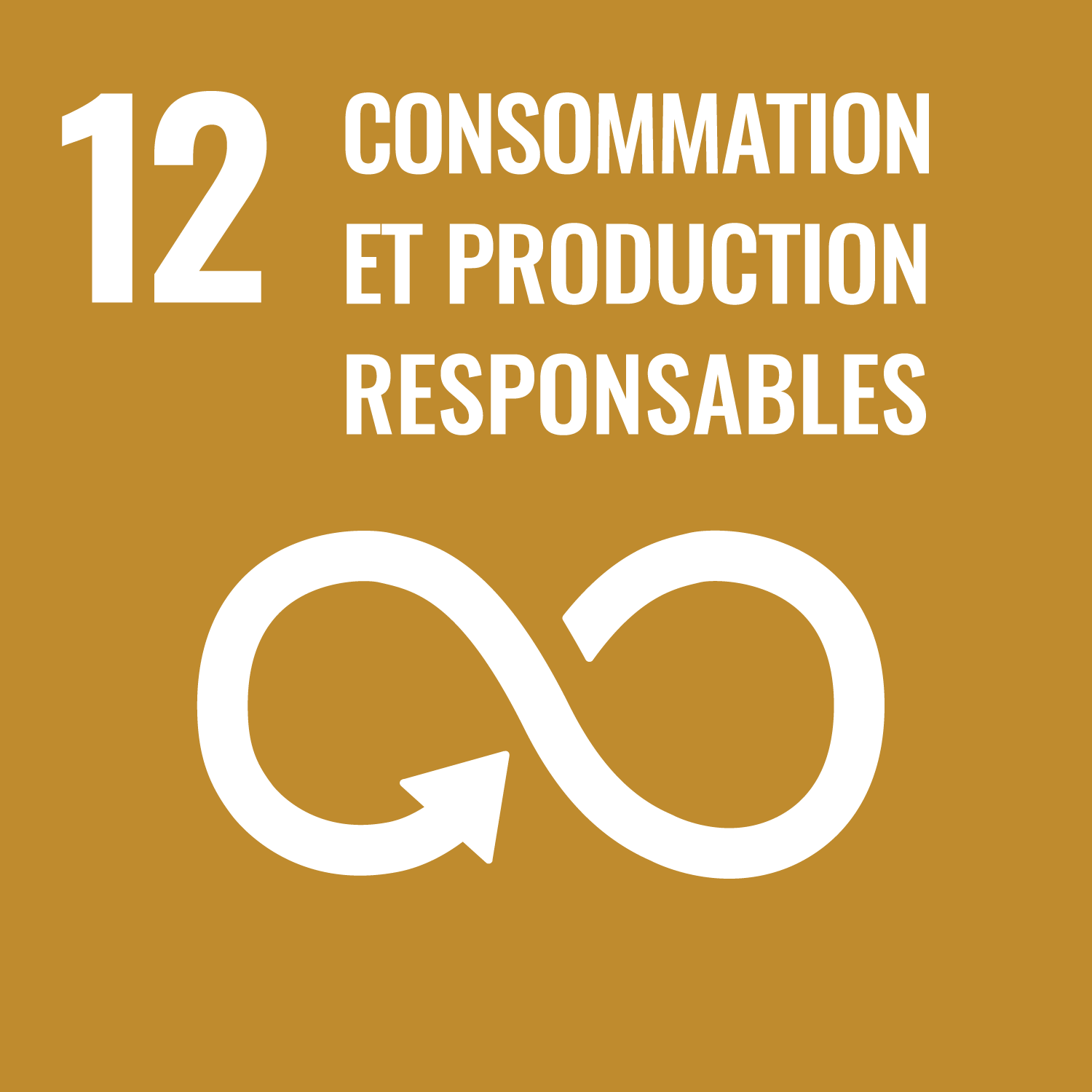
Mathilde MERCIER, Senior Research Teacher in Energy. Ms. Mercier joined UniLaSalle Rennes in May 2021.
An engineer from the Ecole Nationale Supérieure des Sciences du Génie Chimique and a Doctor of Process Engineering from the Institut National Polytechnique de Lorraine, Mathilde Mercier did her thesis in reactive extrusion on the optimization of polymer blend compatibilization.
She then held various positions and worked on different topics in the private sector as an R&D engineer, project manager, trainer and consultant. Her favorite topics are Process Engineering and Energy Transition.
First of all, she spent 9 years in the Research and Development Center at Rhodia in the Lyon region, where, as a process R&D engineer, she contributed to the development of new pharmaceutical processes for industrialization.
Then, as a polymer synthesis engineer, she managed projects for the synthesis of new polymers and the improvement of existing processes (pilots, technical assistance).
Finally, for 4 years, she developed a specific competence in Energy Efficiency for the group with the definition of a methodology applied to new processes & existing plants, the realization of energy savings and the active participation in governance committees of the energy management system. These projects were the subject of patents, publications and collaborations with engineering schools and consulting firms (EPFL, ENSIACET...).
Then, for 9 years, she was a consultant and trainer within IFPTraining with an expertise in Process Engineering and Energy Transition and was able to intervene with many industrialists in France and abroad.
Her intervention themes were: Chemical Engineering, Operational, Energy Efficiency, Renewable Energies, Energy Transition, Refining Processes. She has supervised work-study groups and participated in the accreditation of training centers.
She has been a volunteer for several years at the Cité de l'Environnement, and has participated in the setting up of an exhibition on the circular economy.
For the past 10 years, she has been active and passionate about the energy transition.
Teaching: process engineering and energy.
Research topics: process engineering, methodology for optimizing the energy efficiency of processes in order to limit the environmental impact, circular economy.
Email : mathilde.mercier@unilasalle.fr
See Mathilde Mercier's profile on HAL
Applied Sustainable Development Objectives
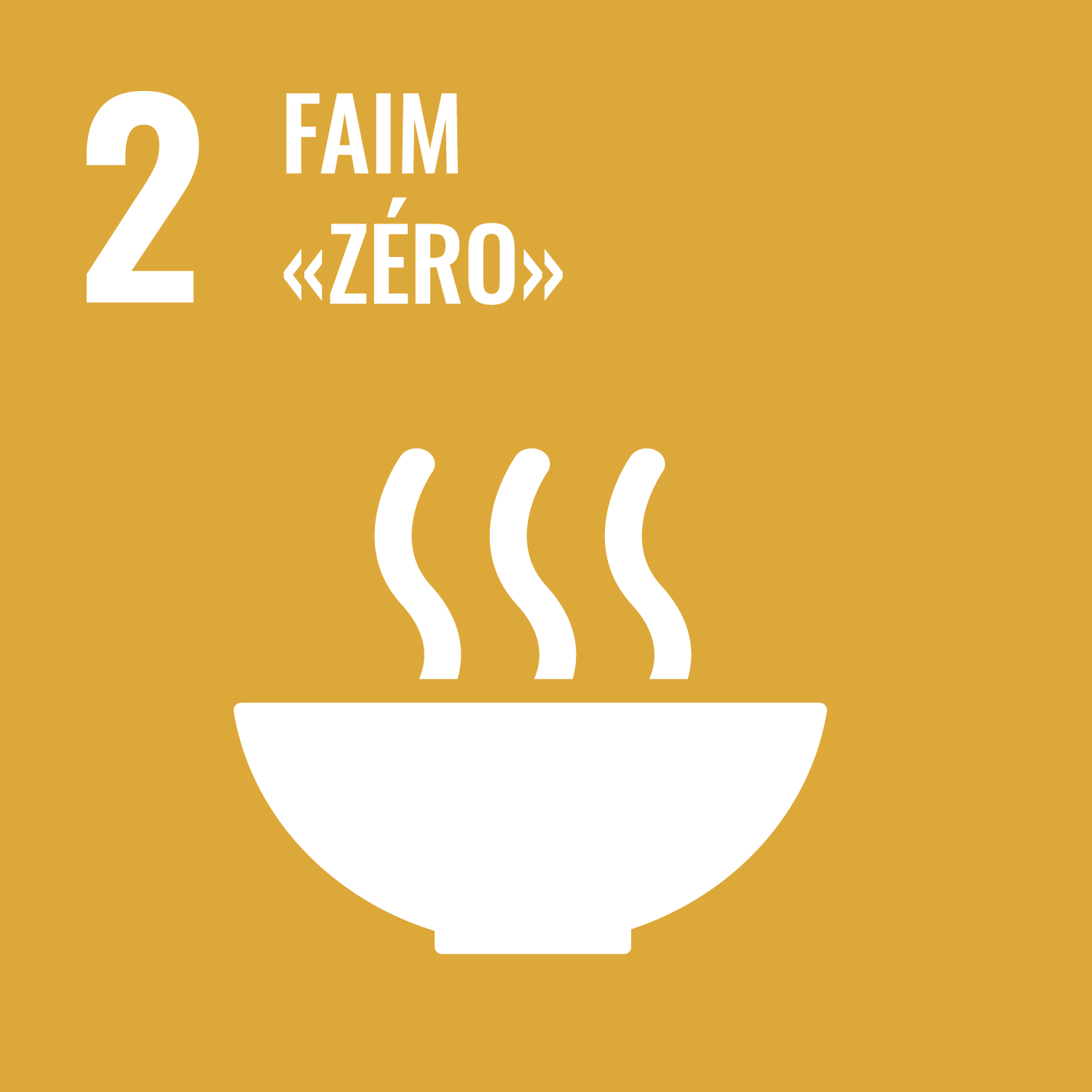
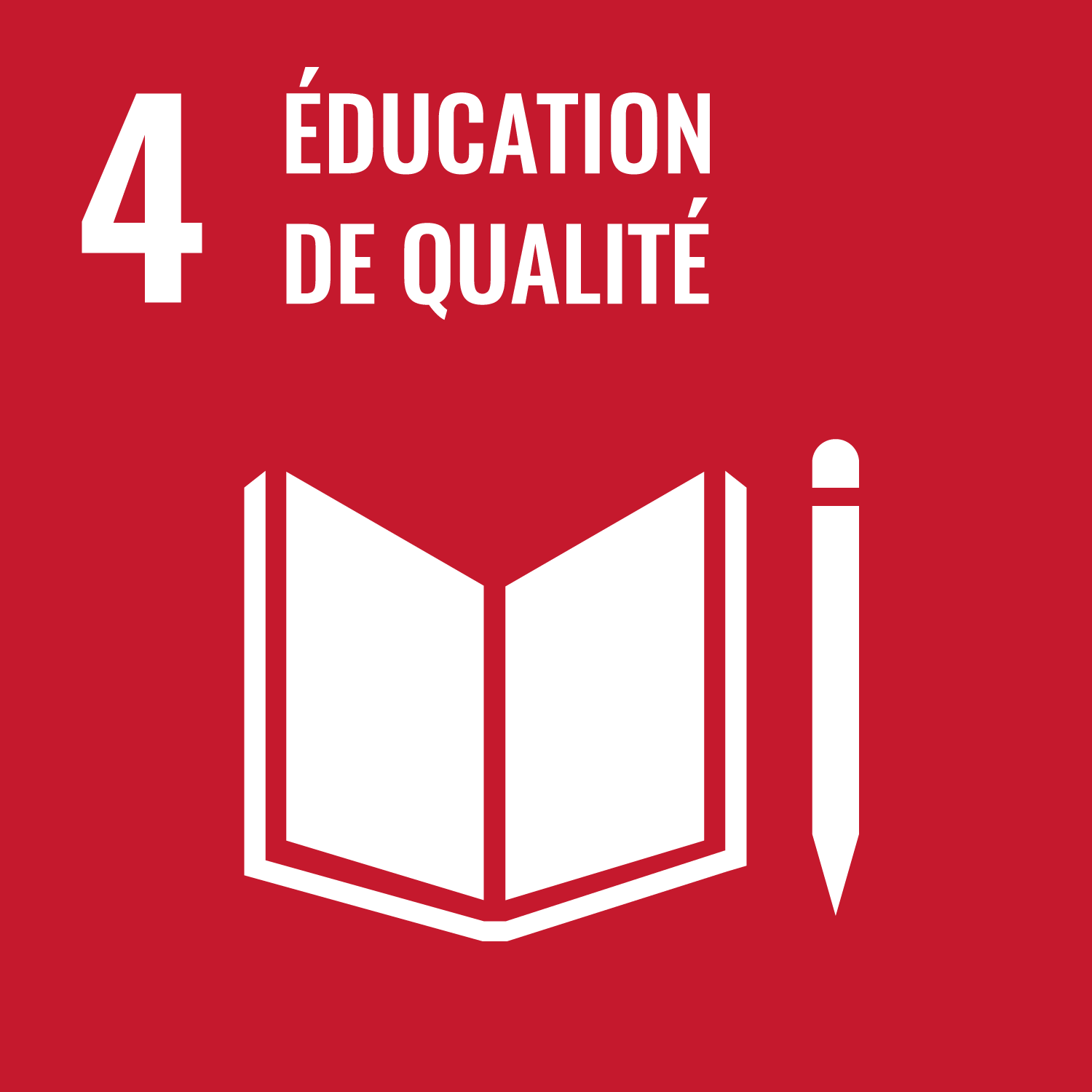
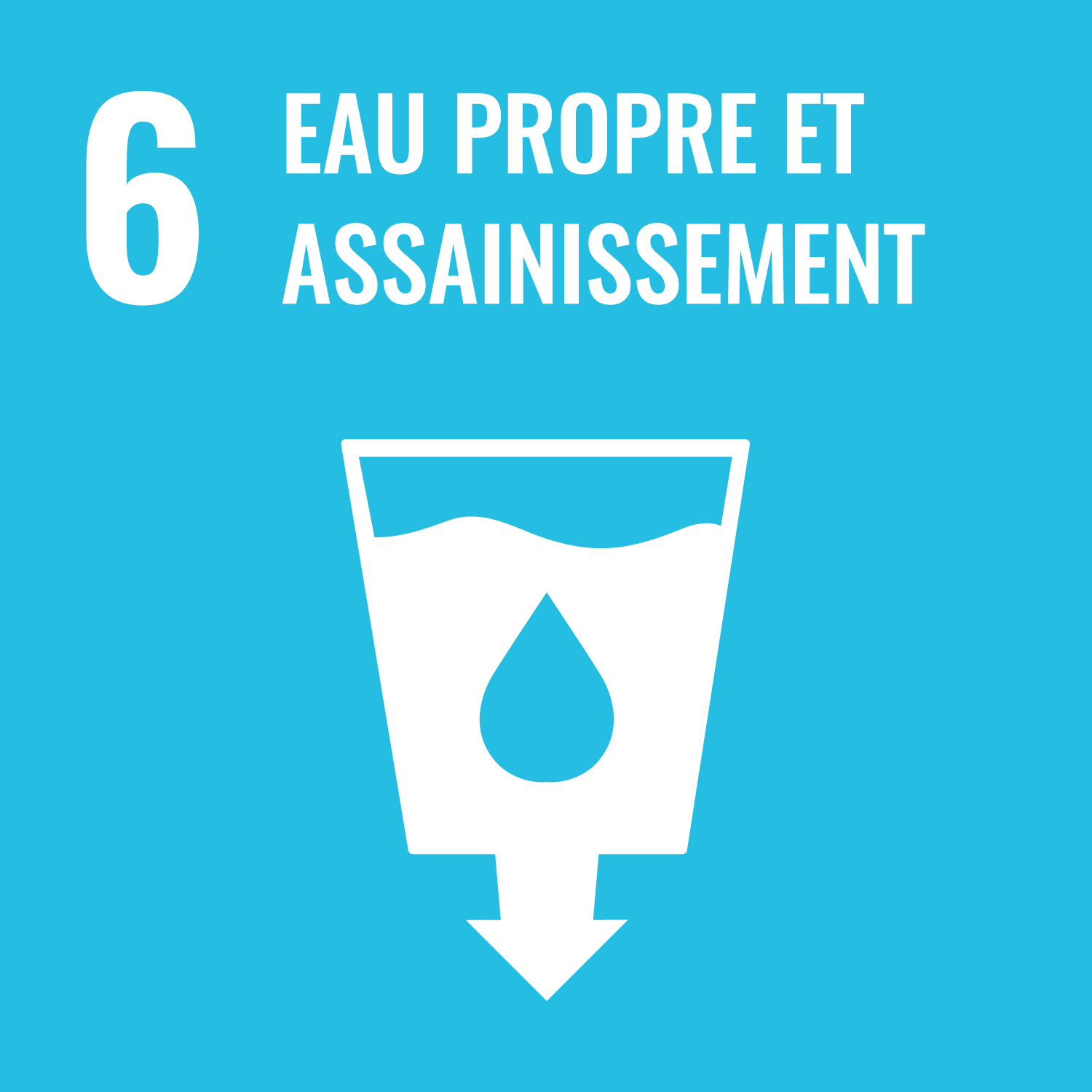
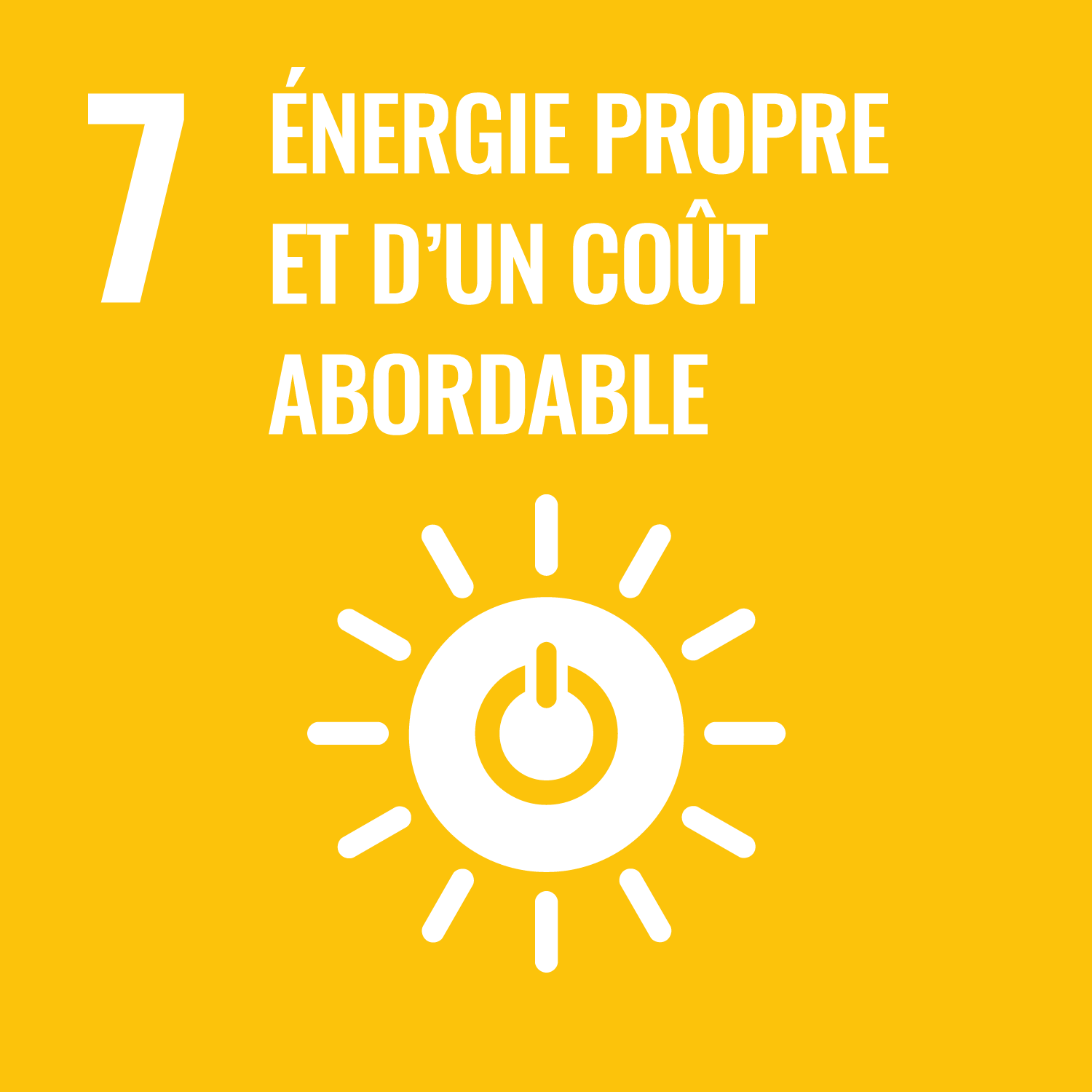
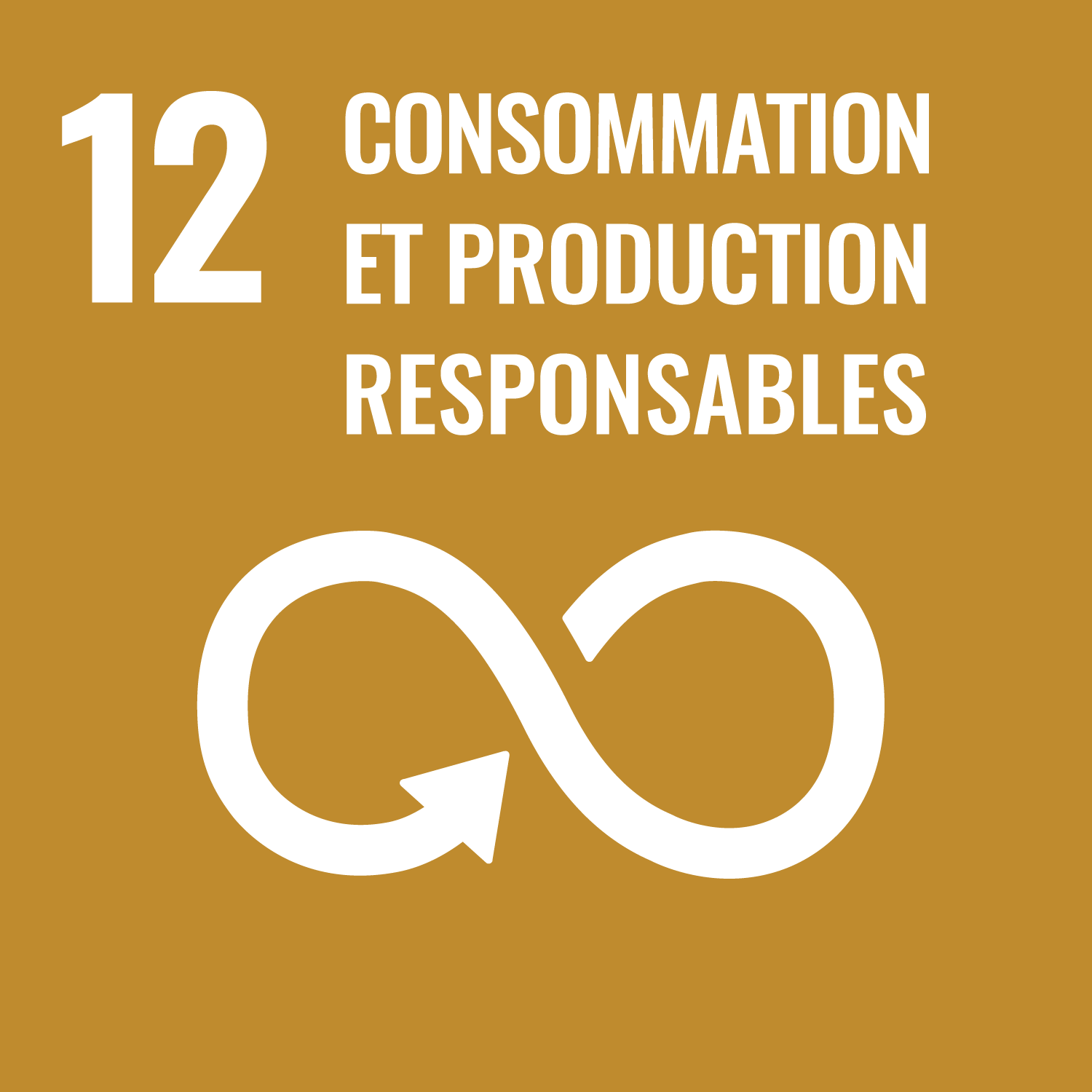
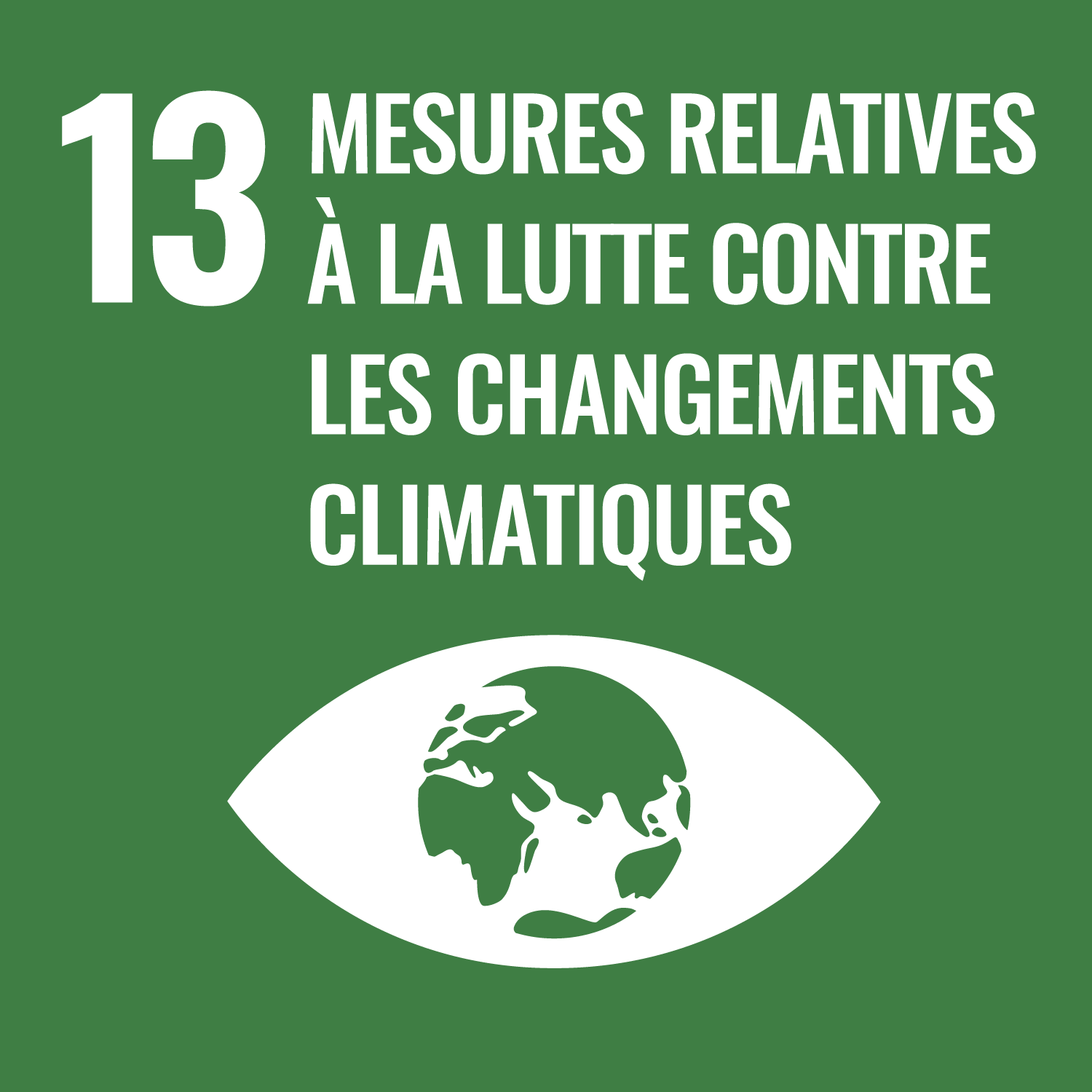
Messika REVEL, Professor-researcher at UniLaSalle since January 2021, PhD in Biology.
Messika REVEL completed her doctoral thesis (Institut National de la Recherche Scientifique and NRC in Montreal) on the ecotoxicity of carbon nanotubes in aquatic invertebrates and the impact of abiotic factors (organic matter and cadmium), using standardized tests and biomarkers.
She was then a lecturer at the Université Catholique de l'Ouest (UCO) in Angers and did two years of postdoctoral work in the laboratory "Mer, Molécules, Santé" of UCO working on two projects on the accumulation and ecotoxicity of microplastics in estuarine invertebrates (MiPlAqua regional project and GIP Seine-Aval Plastic-Seine) She was also the pedagogical manager of the M2 "Environmental Management and Sustainable Development" option of the Master Ecology and Sustainable Development of the UCO in 2019-2020.
Research topics: ecotoxicology, ecology, biomarkers, immunotoxicity, genotoxicity, emerging contaminants, bioassays, nanomaterials, microplastics.
Email: messika.revel@unilasalle.fr
See Messika Revel's profile on HAL
Applied Sustainable Development Objectives
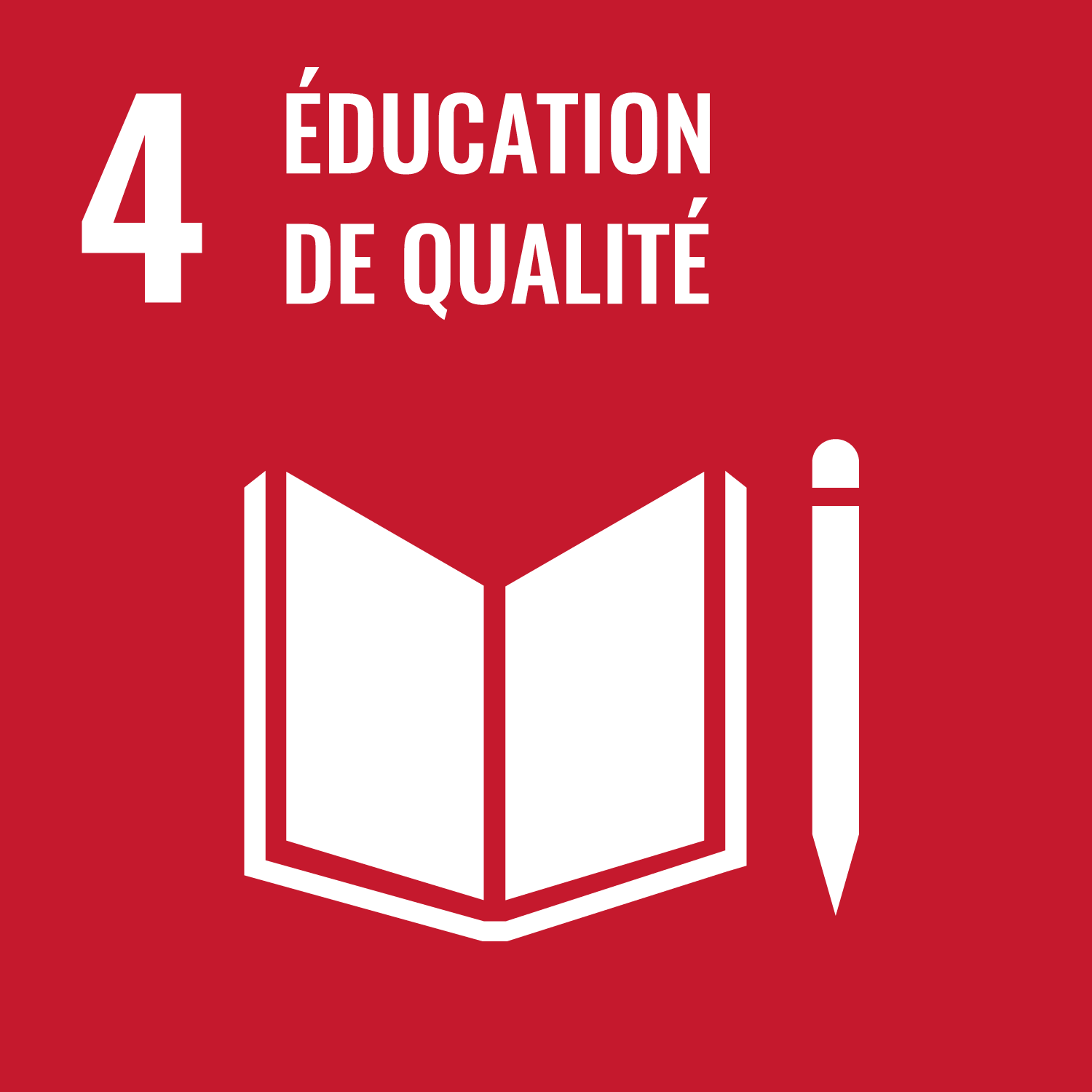
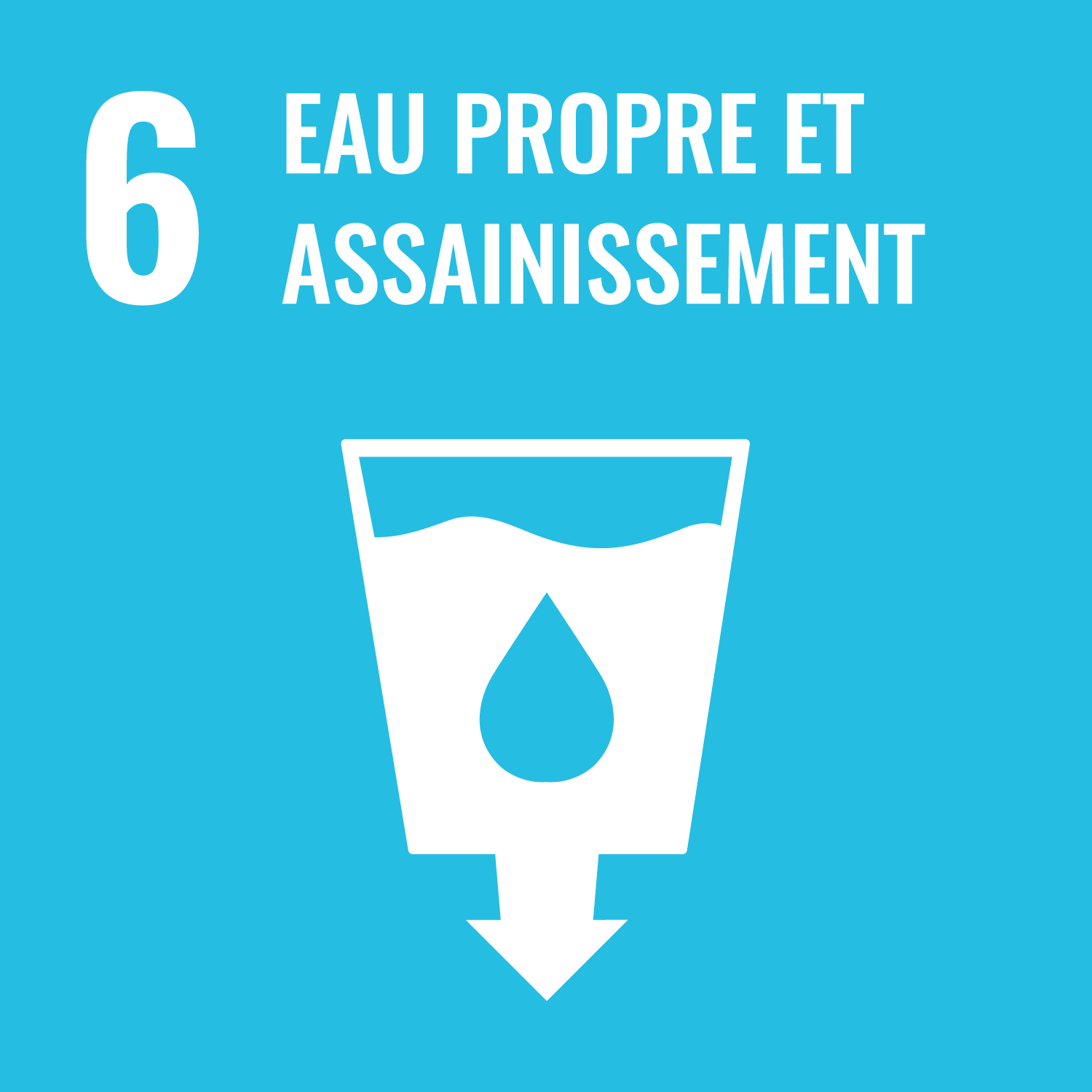
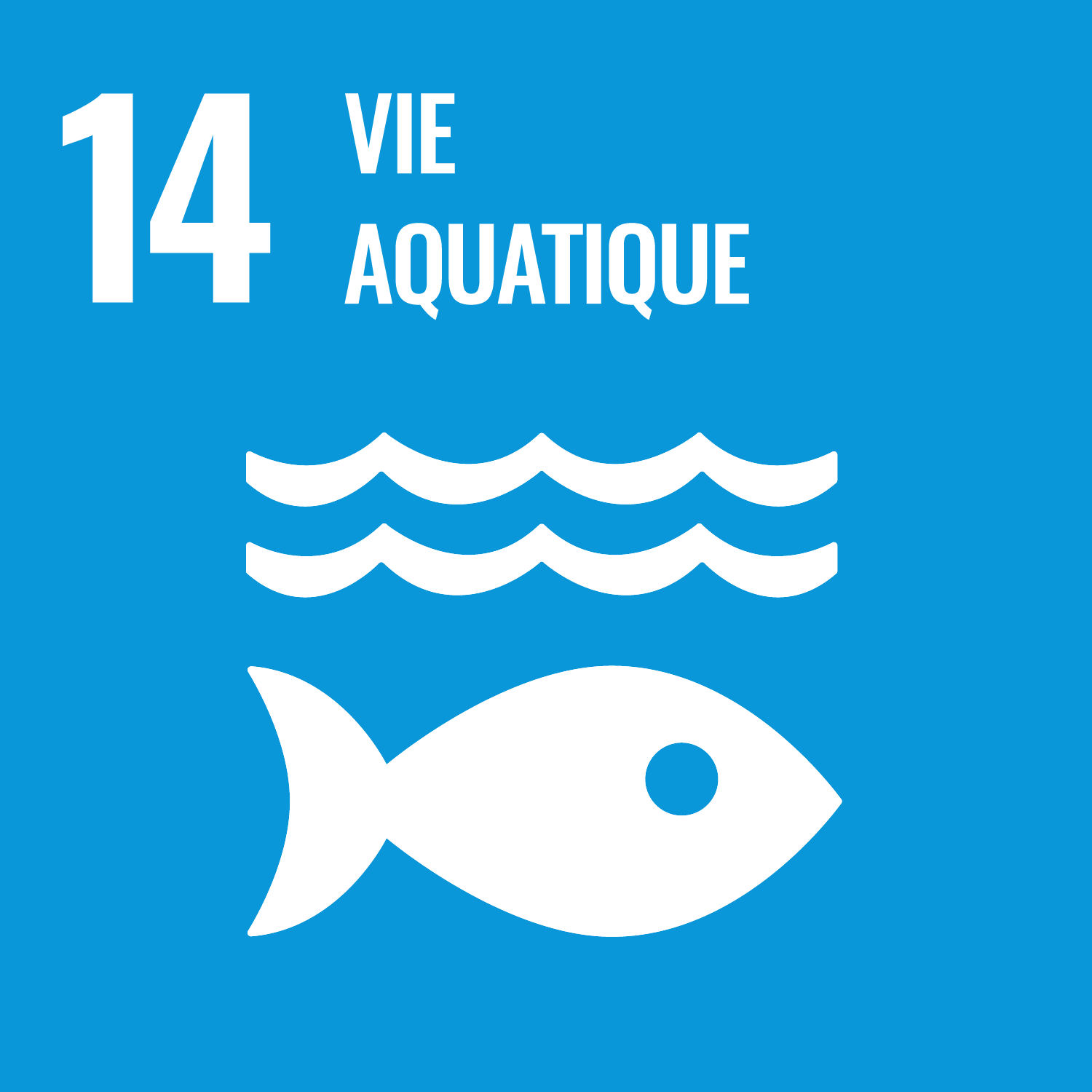
- Ecotoxicology
- Microplastics
- Pollutants
- Stress
- Aquatic environment
- Ecosystems
- Immunotoxicity
- Genotoxicity
Membres de Cyclann non-permanents
Karima MEHREZ : Ingénieure d'études à UniLaSalle Rennes | École des métiers de l'environnement depuis janvier 2023 à la suite de l'obtention d'un Master en Génie Chimique Bioprocédés-Bioproduits.
Karima MEHREZ a réalisé son mémoire de master (Ecole Nationale des Ingénieurs de Gabès ENIG Tunisie) sur la dynamique d’adsorption des molécules organiques (Bleu de Méthylène) sur les biosorbants (résidus d’extraction des huiles de figue de Barbarie) et le développement des modèles numérique par les logiciels de simulation (COMSOL Multiphysics..) dans le cadre de traitement des eaux usées et la valorisation des déchets industriels.
Thèmes de recherche : Traitement des effluents industriels, Adsorption, Biomatériaux, Simulation.
Email : karima.mehrez@unilasalle.com
Objectifs de développement durable appliqués
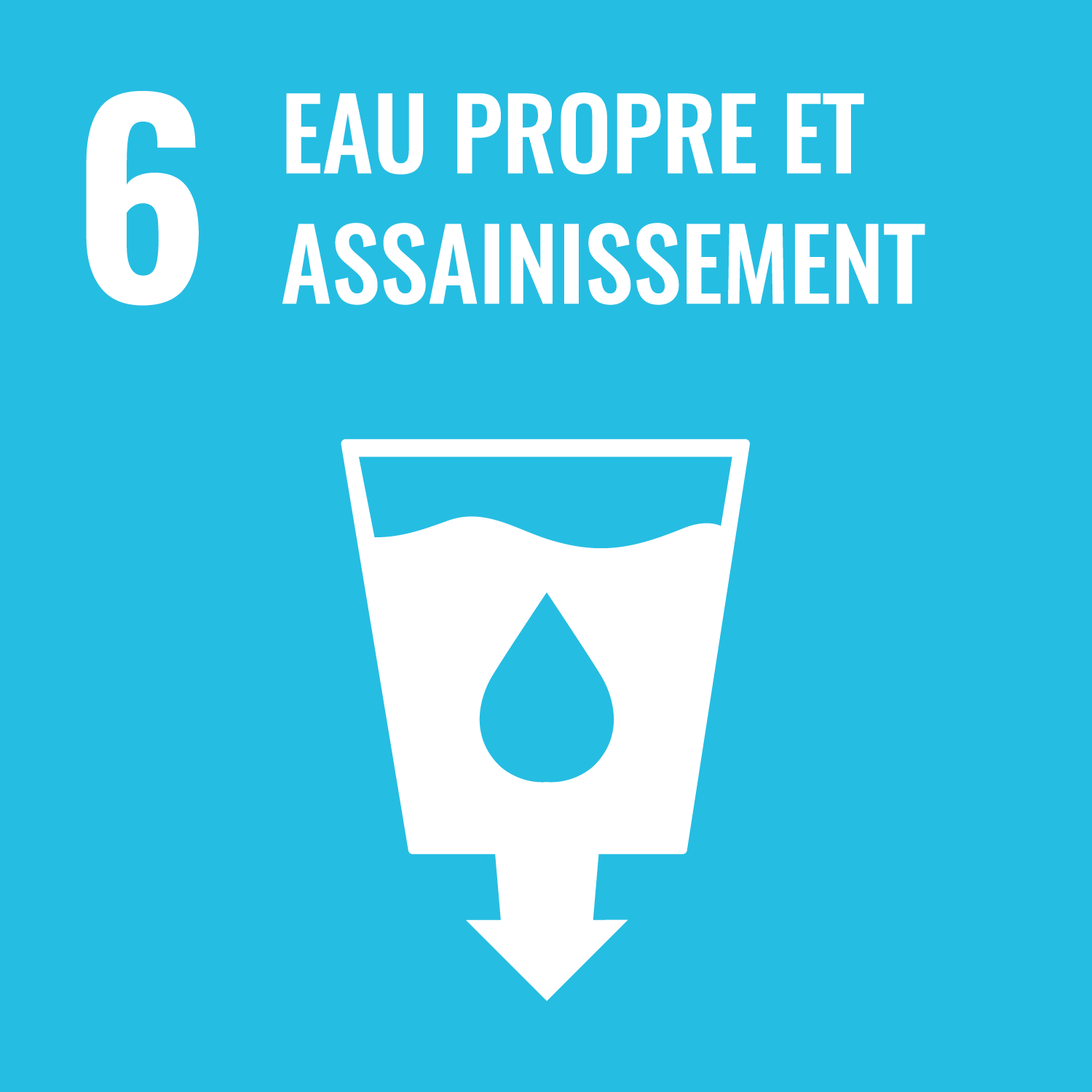
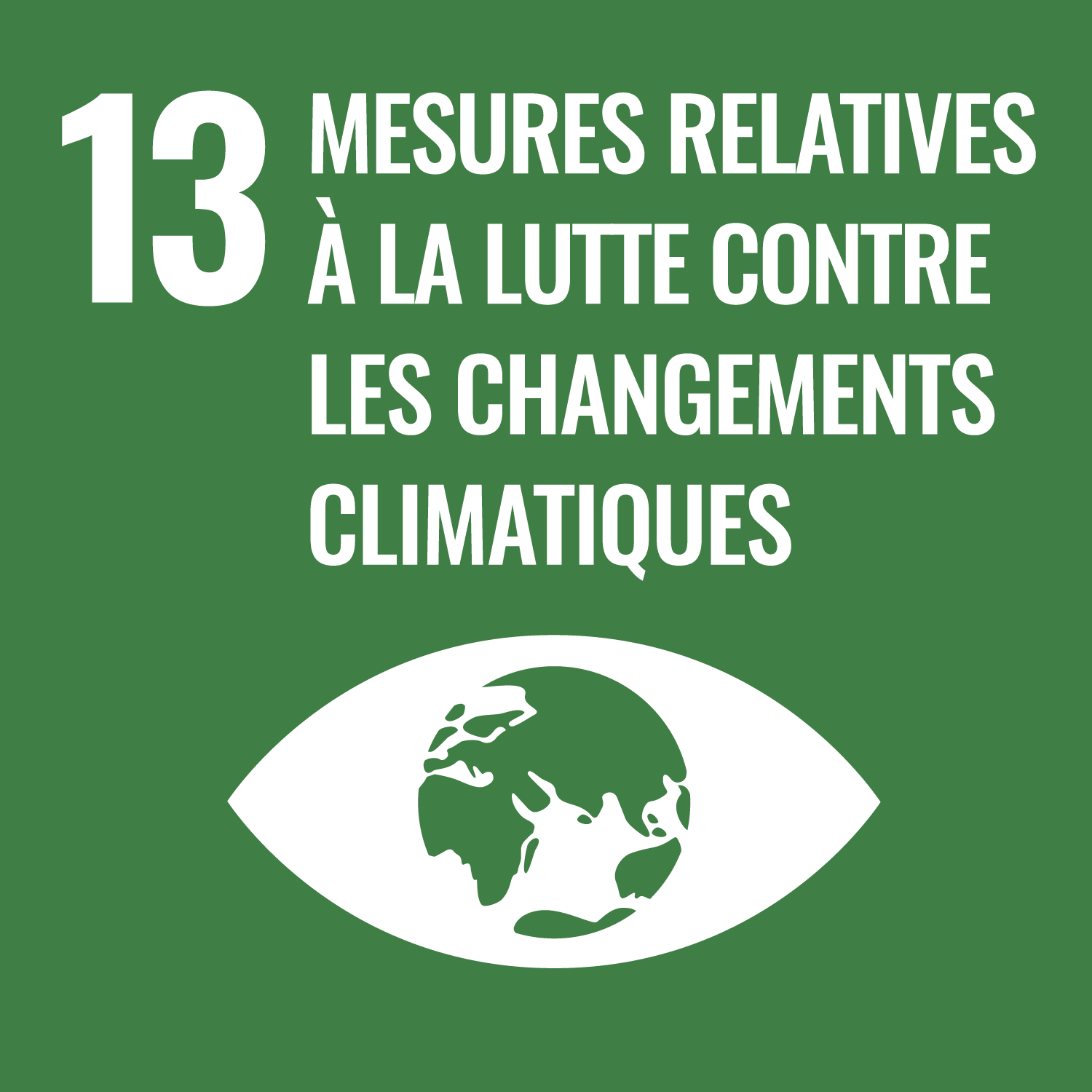
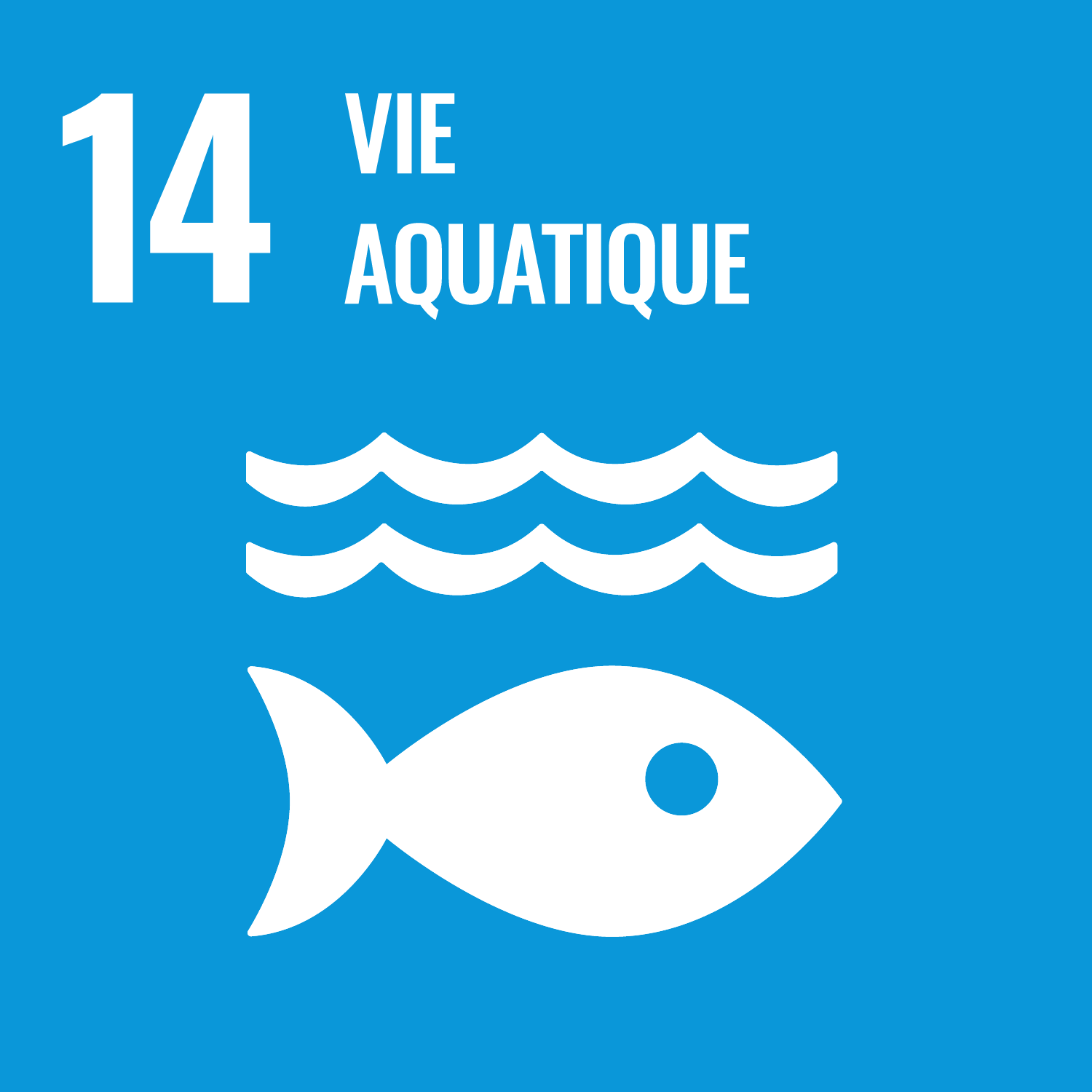
- Biomasse
- Eaux usées
- Produits biosourcés
- Conception et optimisation des procédés.
Alaa SALMA est chargée de Recherche au sein du projet METCHAR. Elle travaille sur l’impact du biochar sur l’activité microbiologique et la production de biogaz en méthanisation. Elle a intégré UniLaSalle Rennes | École des métiers de l'environnement en Avril 2023.
Docteure en Chimie ‘‘ Procédé de l’environnement’’ (de l’école Nationale Supérieure de Chimie de Rennes, France), A. SALMA a soutenu sa thèse en 2020 sur l’application d’une stratégie de fermentation pour la production d’acide succinique (molécule plateforme) en utilisant la souche bactérienne Actinobacillus succinogenes.
Thèmes de recherche : Fermentation, bio-production, optimisation, molécule plateforme, biomasse, procédure microbienne, acide succinique, bio-électrochimie
Email: alaa.salma@unilasalle.fr
Objectifs de développement durable appliqués
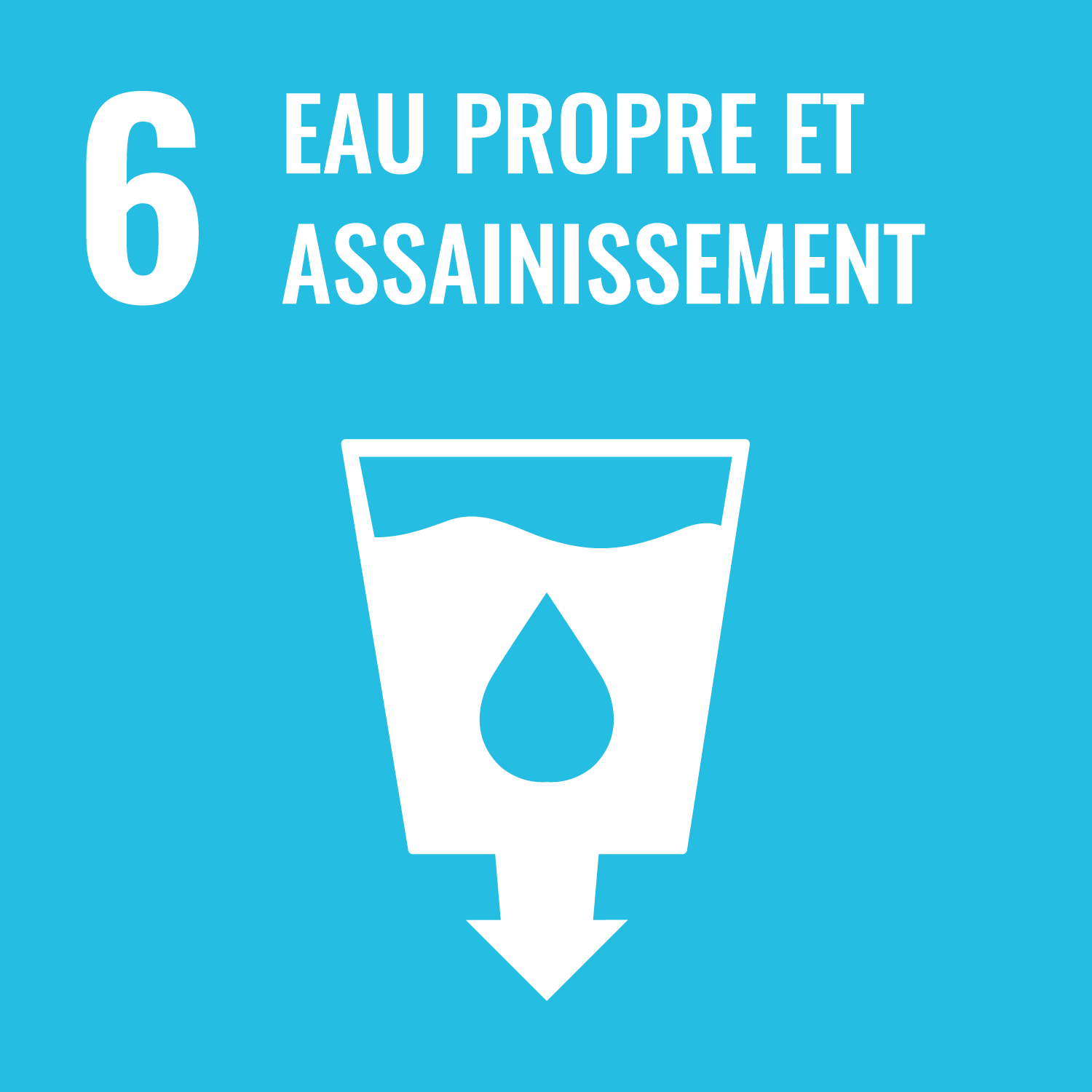
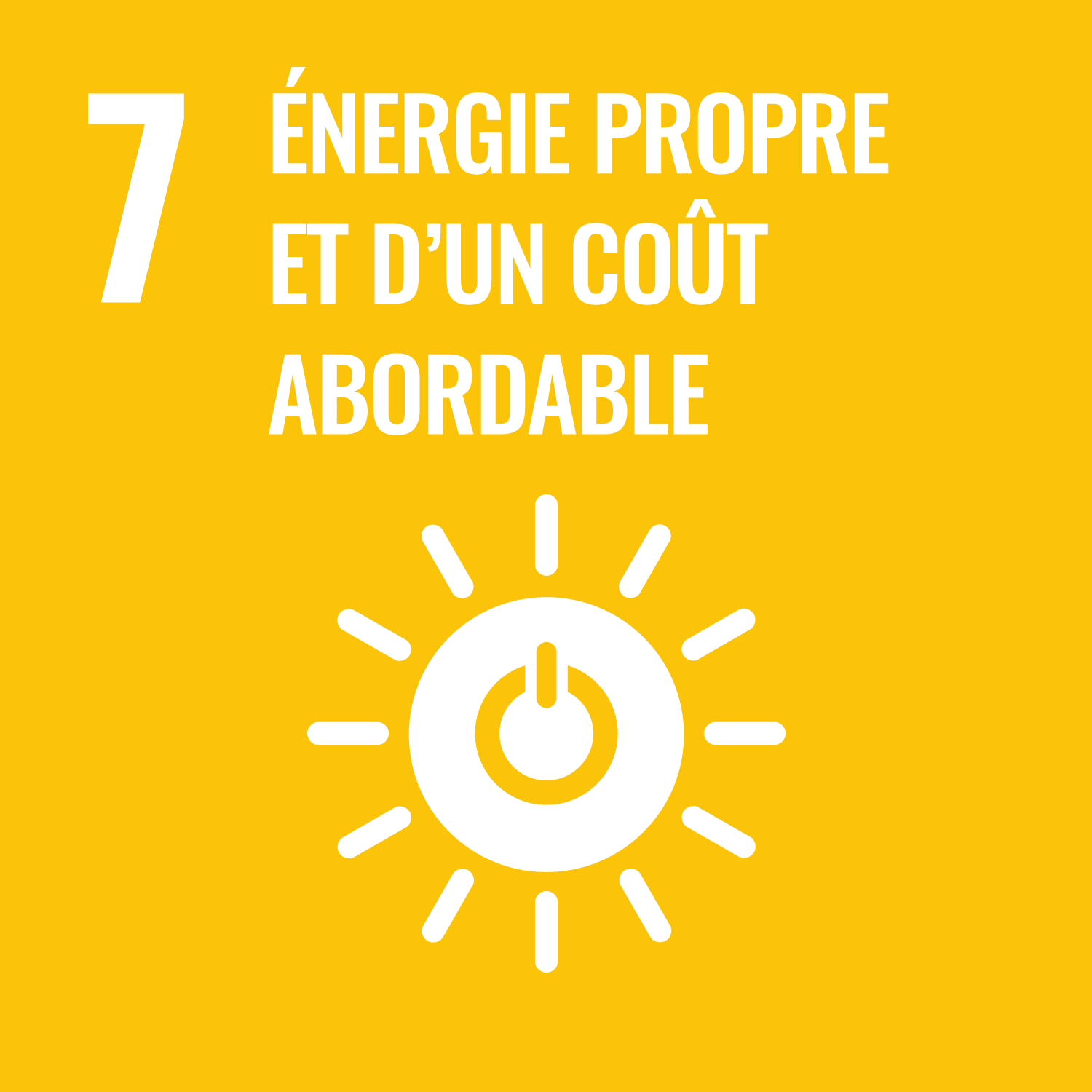
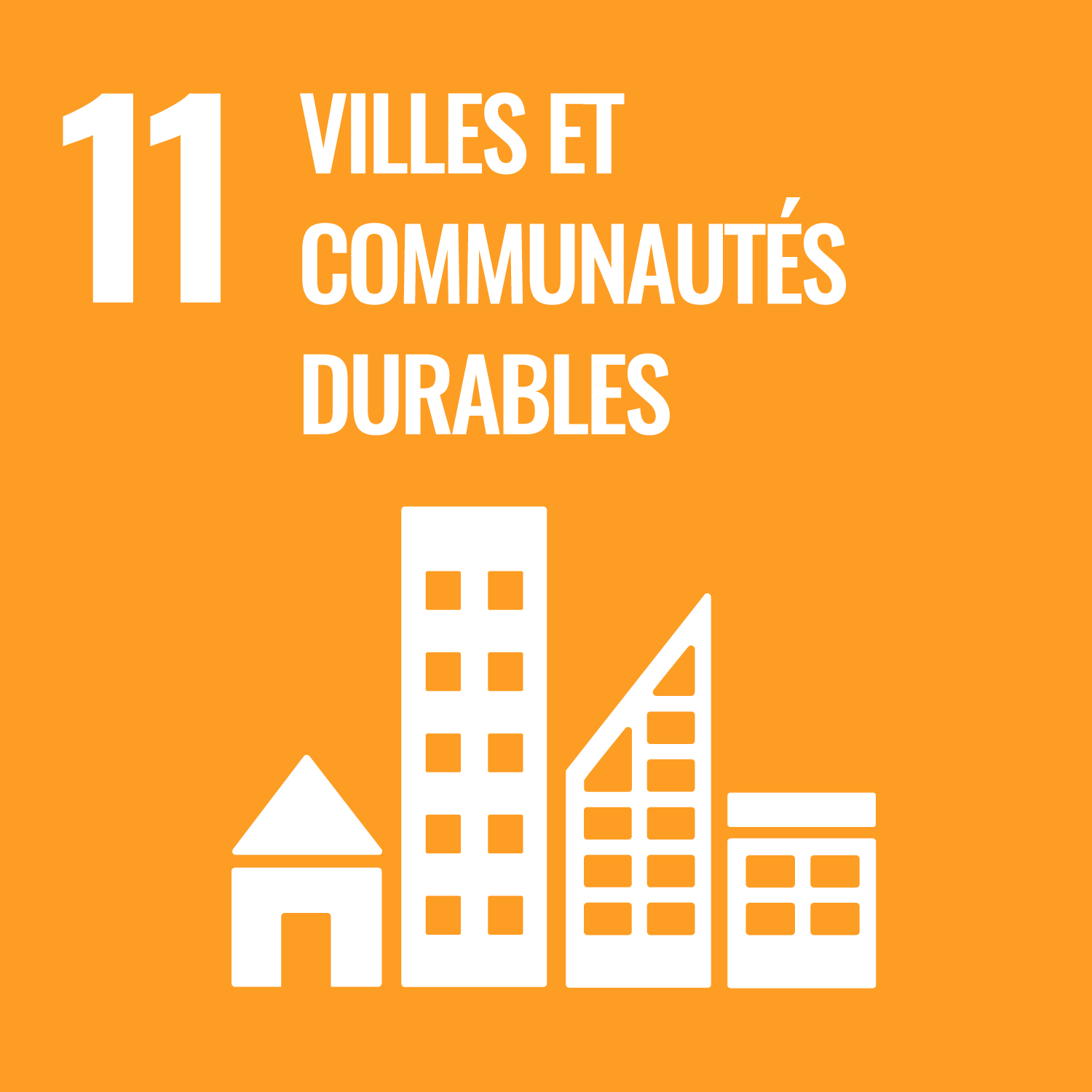
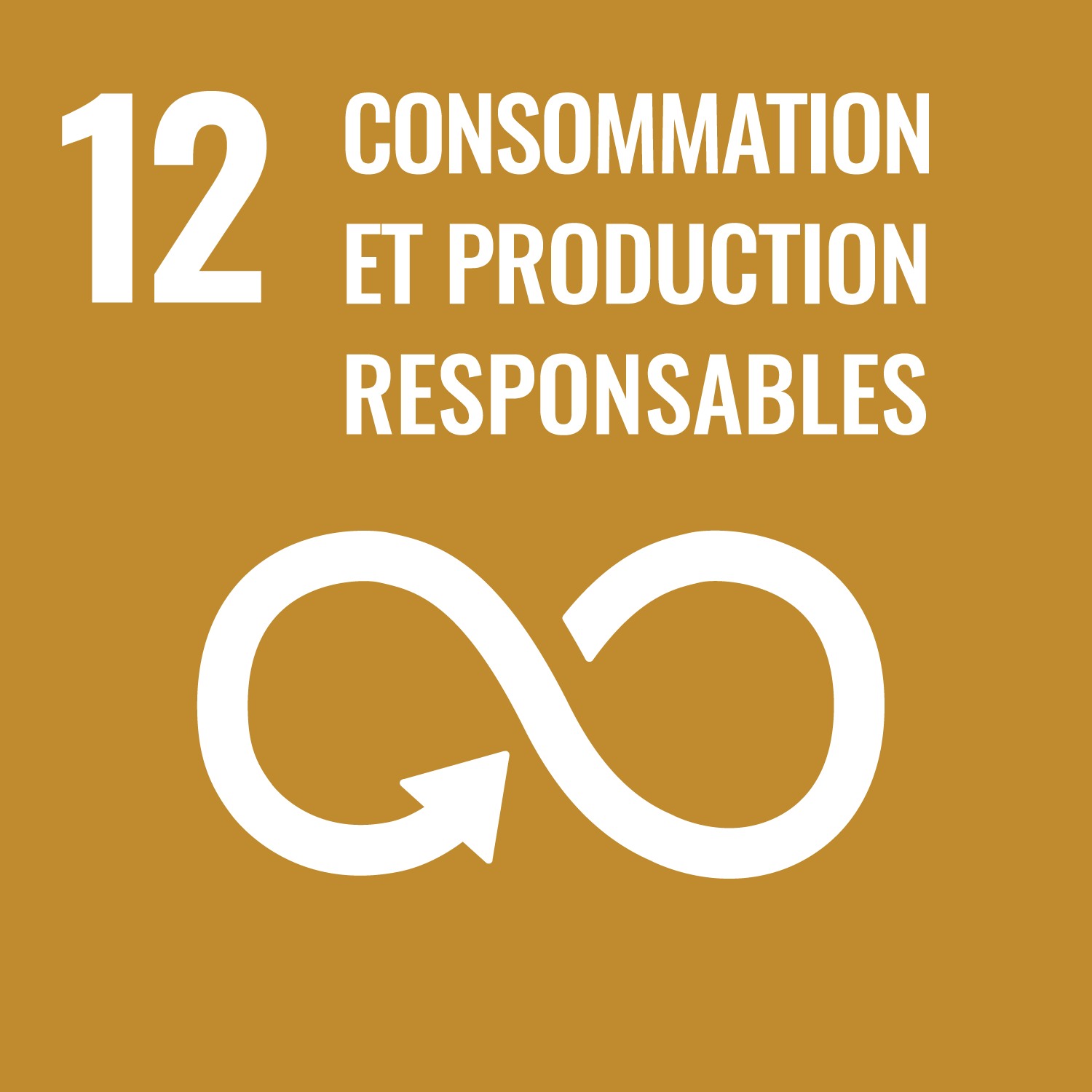
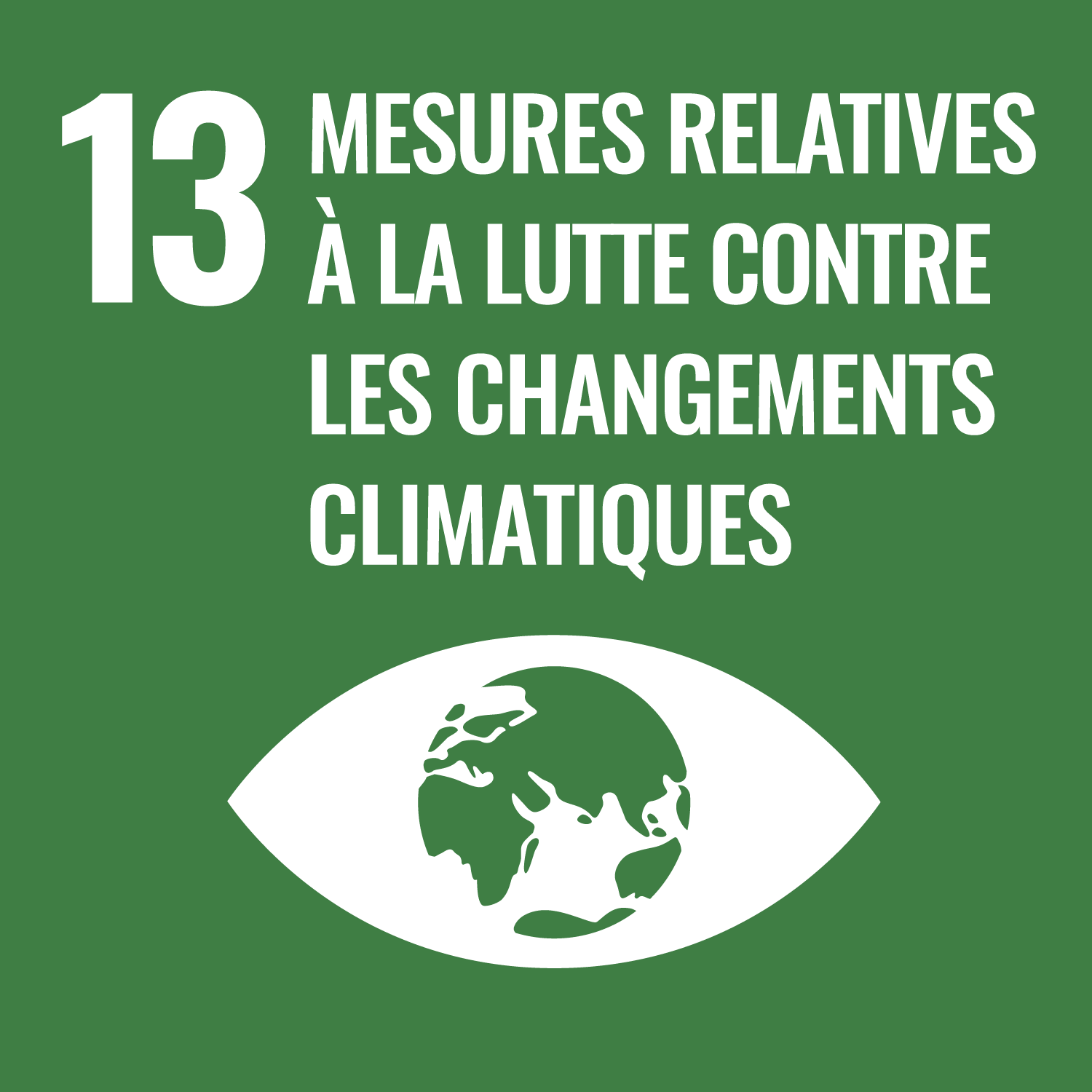
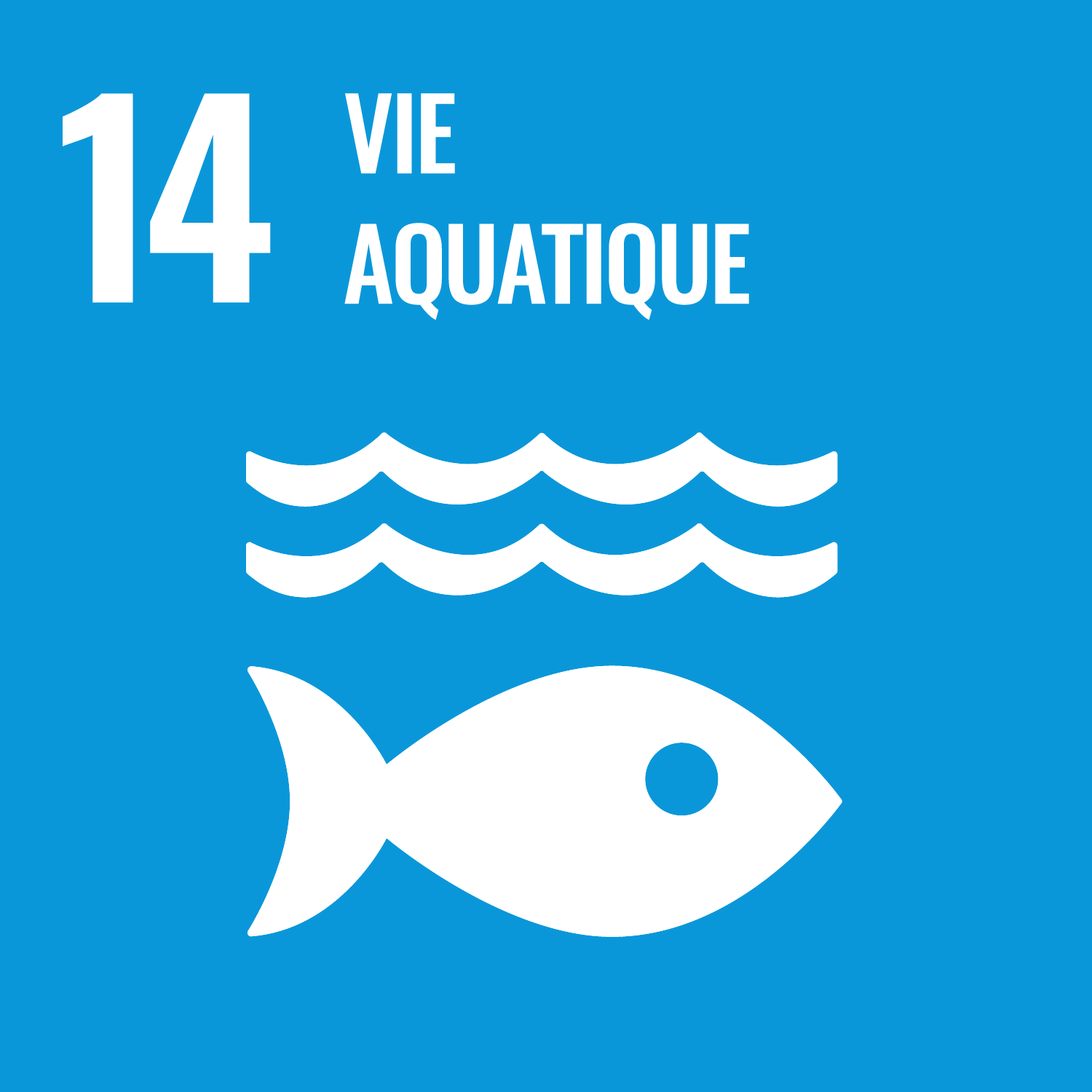
Mazhar Hussain est chargé de recherche au sein du projet VALODEB (VALorisation de DEblais inertes en matériaux innovants). Ce projet est financé par le programme France Relance et l'entreprise Gendrot TP dans le cadre de la mesure "préservation de l'emploi R&D".
Il travaille sur la valorisation des déblais inertes dans les matériaux de construction, matériaux routières, aménagement paysage et remblayage. Il a intégré l'équipe Cyclann d'UniLaSalle Rennes | École des métiers de l'environnement en septembre 2022.
Docteur en génie civil et sciences de matériaux durables, M. Hussain a soutenu sa thèse en 2022 sur la valorisation des sédiments de dragage dans les matériaux de construction (applications routières et aménagement paysager).
Thèmes de recherche : Matériaux biosourcés, sols excavés, sédiments de dragage, granulats recyclés, aménagement paysager et remblayage.
E mail : mazhar.hussain@unilasalle.fr
Voir le profil de Mazhar Hussain sur Researchgate
Objectifs de développement durable appliqués
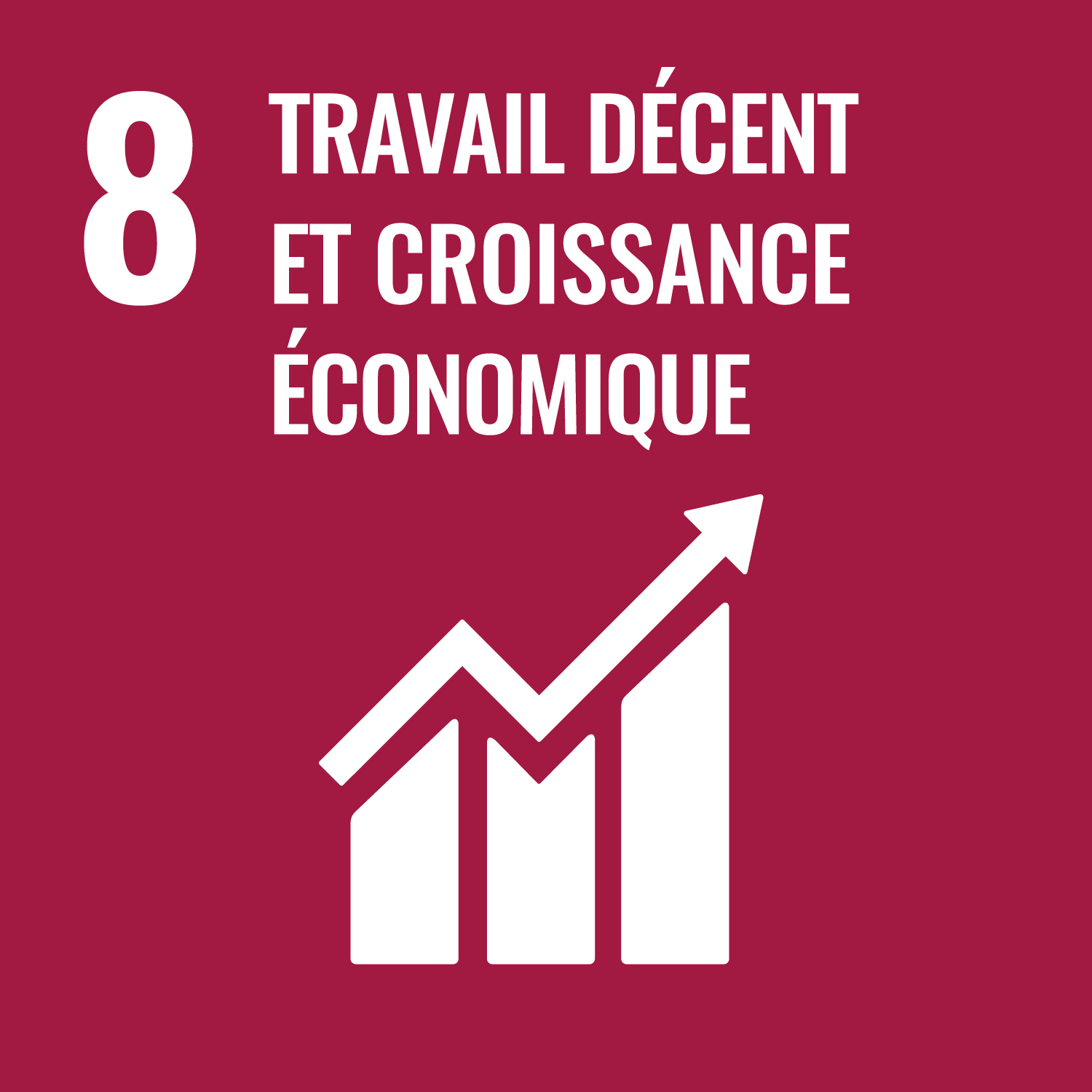
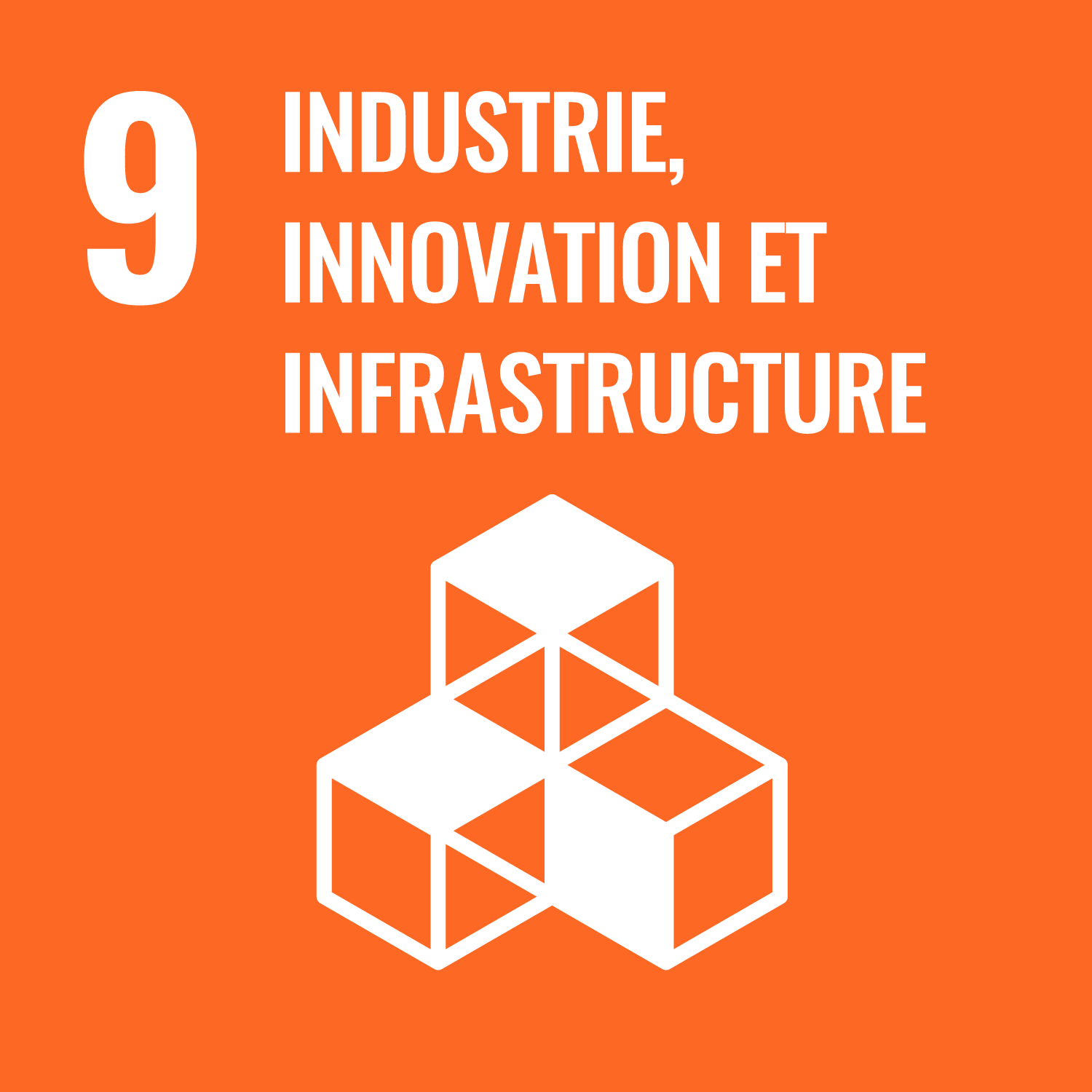
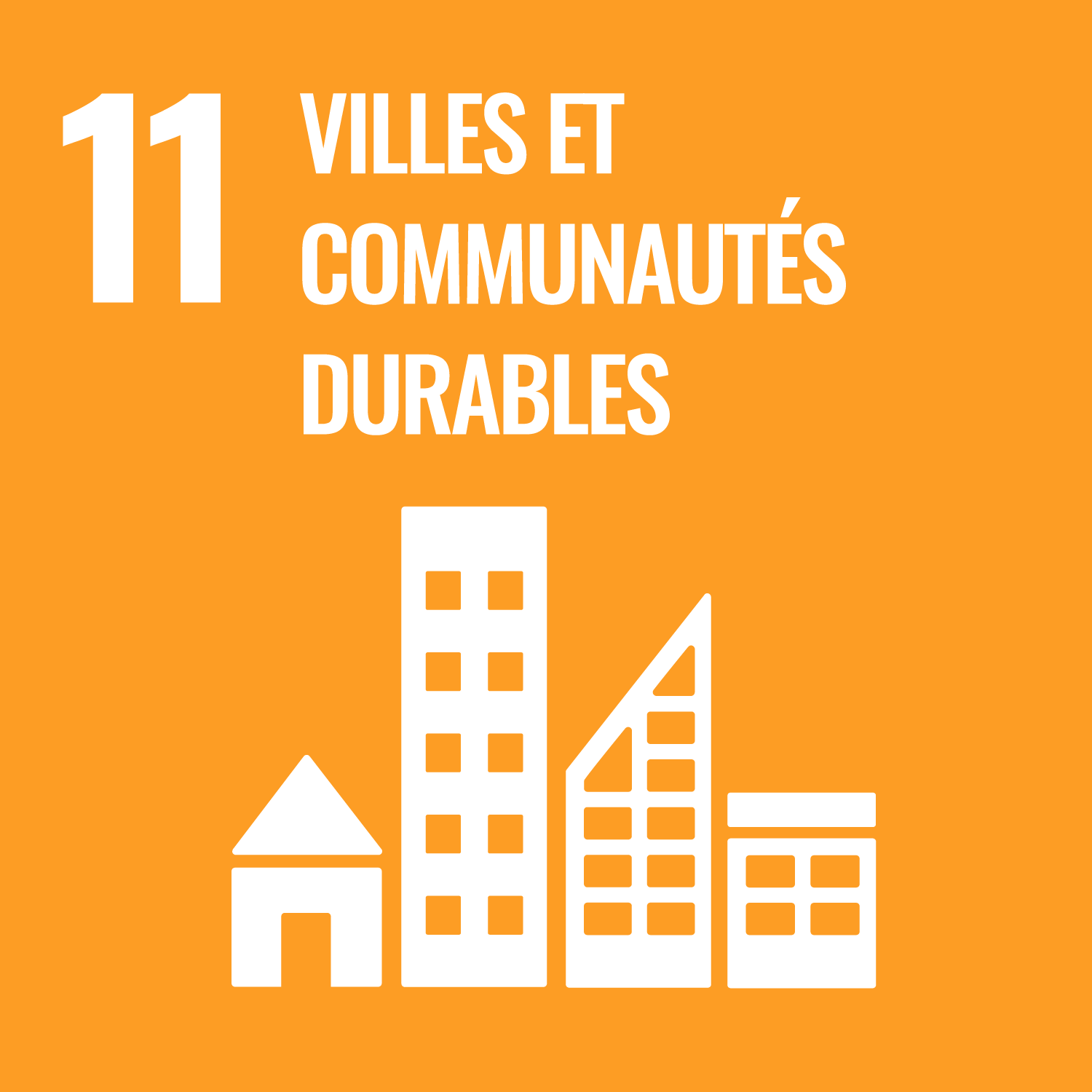
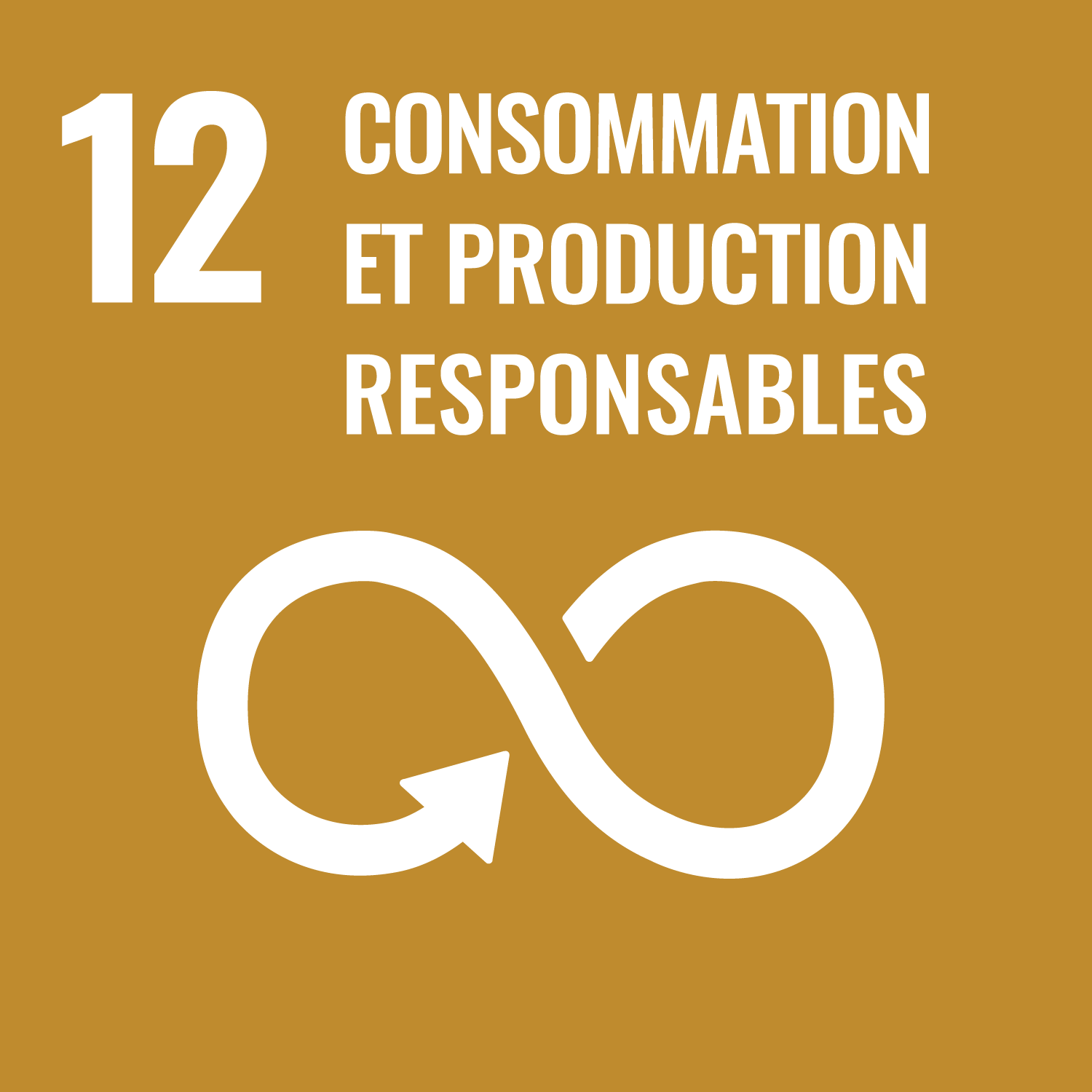
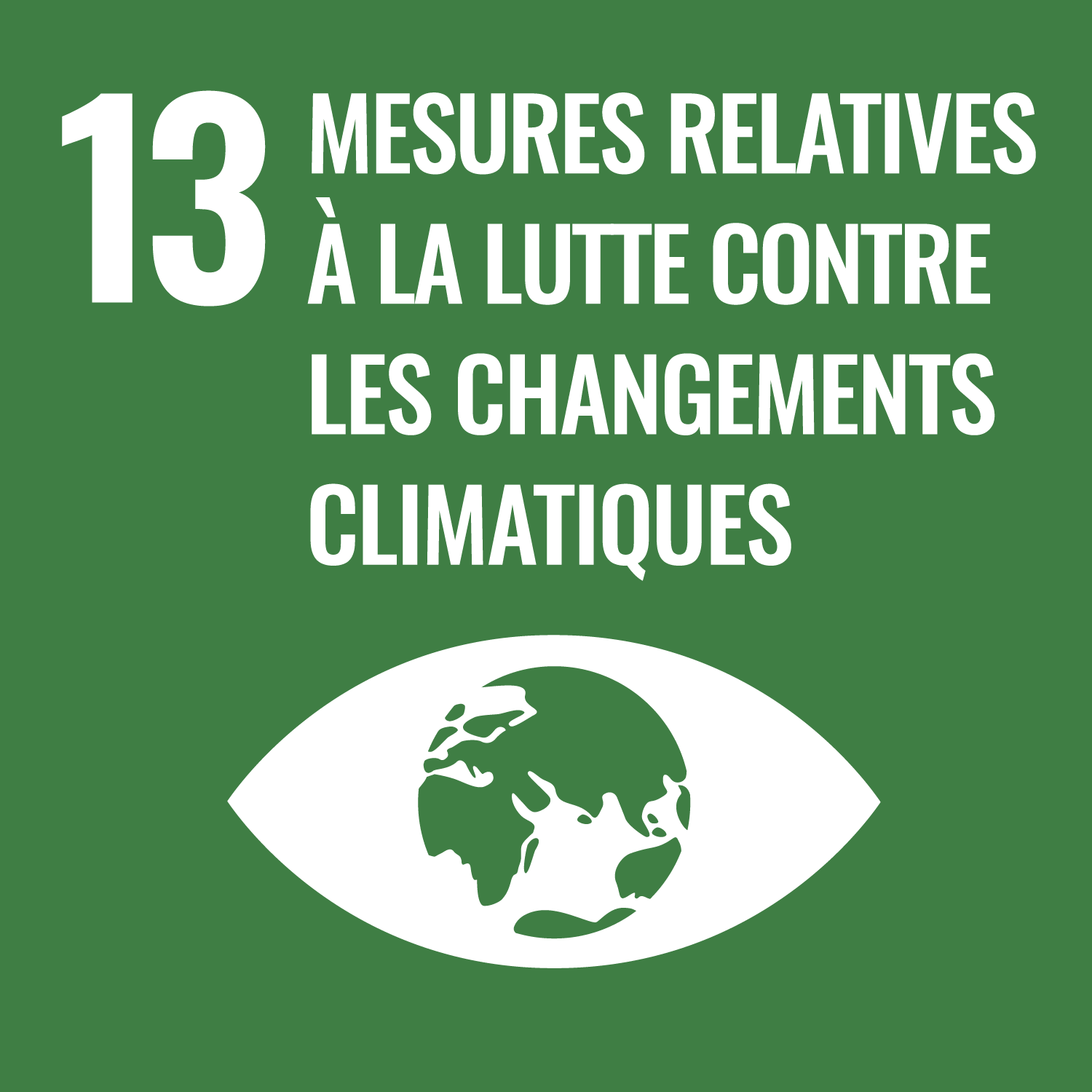
Enseignants ressources
D’après leur expertise et leurs expériences professionnelles antérieures, les enseignants ressources travaillent en appui sur les projets des étudiants.
Reynald LHERBIER, Ingénieur généraliste Arts et Métiers (anciennement ENSAM : Ecole Nationale Supérieure des Arts et Métiers) sur le campus de Cluny (Bourgogne) s'est spécialisé en éco-conception de biens et de services en dernière année à l’institut des Arts et Métiers de Chambéry.
Sa 1ère et 2ème année en DUT génie mécanique et productique à Amiens se sont vues complétées par un stage de fin d’études de DUT dans un chantier naval comme préparateur d’atelier.
Son stage de fin d’études ingénieur en 2021 s'est déroulé chez Orange Innovation à Cesson-Sévigné sur le thème des low-tech appliqués aux technologies d’information et de communication (TIC). Ses missions pendant ce stage :
- Participer à un projet de recherche collaboratif de l’association EcoSD en lien avec d’autres universités et entreprises
- Rencontrer de nombreux acteurs du low-tech en France
- Réaliser une étude bibliographique sur les low-tech en général et plus spécifiquement sur le monde du numérique
- Recherche sur l’application des low-tech aux produits numériques (Livebox Low-tech, site web low-tech…)
- Comparaison de la notion avec d’autres approches (écoconception, innovation frugale…)
- Caractérisation du low-tech (développement d’indicateurs)
Par ailleurs, il a participé à l’organisation de la CAMTE (Convention Arts et Métiers pour la Transition Ecologique) qui a eu lieu le 25 mars 2022 (comme responsable logistique et conférences).
Spécialités : ingénierie, low-tech, analyse de cycle de vie et éco-conception
Email : reynald.lherbier@unilasalle.fr
Lise SWERTVAEGER est diplômée Ingénieur Génie de l'environnement de l'EME.
Elle a fait son stage de fin d’études chez Suez (Ex CITA) et a signé son 1er emploi à la suite en tant que Responsable d’exploitation sur les métiers de collecte.
Ses clients étaient des collectivités territoriales du Finistère. Elle a encadré une équipe d’une vingtaine de personnes pendant 4 ans.
Ensuite Lise a été responsable d’exploitation de la collecte du centre-ville de Rennes. Elle manageait alors une équipe de 65 personnes, ouvriers et techniciens pendant 3 ans.
Elle a évolué sur le management de 2 exploitations Cesson Sévigné et Chartres de Bretagne (Responsable de contrats). Son client principal restait Rennes Métropole.
Elle a encadré 120 personnes : du manager d’équipes aux cadres d’exploitation. Elle veillait au respect des normes et de la réglementation, élaboration et respect du budget et satisfaction du client.
Pour découvrir d’autres modes de fonctionnement et s’ouvrir, Lise a intégré le groupe Sturneau, le pôle déchet, une PME en tant que responsable d’activité. Elle a élargi son champ de compétences : elle avait une dizaine d’exploitations sur la gestion des déchets réparties sur la Bretagne et la Normandie. Management à distance, développement commercial. Ce qui lui plaisait était la diversité des clients et des activités : collecte, traitement et valorisation des déchets. Lors du confinement et pour répondre au besoins des clients, Lise et ses équipes ne se sont jamais arrêtées !
Après ces 15 d’expériences, Lise a souhaité transmettre ses savoirs et compétences et s’adresser aux étudiants avec des cas concrets et variés de gestion des déchets.
Elle enseigne depuis 2022 auprès des élèves-ingénieurs Génie de l’environnement et Bachelor Environnement et Développement Durable par la voie initiale et la voie de l’apprentissage. Elle et a également comme responsabilité le cursus Bachelor.
Son parcours professionnel lui permet d’aider à la projection des élèves dans le monde du travail.
Son ambition est que le pourcentage de professionnels dans le milieu du déchet augmente !
Email : lise.swertvaeger@unilasalle.fr
Doctorants ayant soutenu ces 5 dernières années
Margaux LHUISSIER (Bourse CIFRE entreprise CHIMIREC, Co-encadrement : A. KANE, UniLaSalle Rennes - A. AMRANE Université Rennes1- J-L. AUDIC, Université Rennes1, Directrice de thèse : A COUVERT, ENSCR) – projet ECOV (2016-2019)
Ce projet propose la réutilisation d’huiles collectées par une entreprise de collecte et de recyclage d’huiles usagées. L’objectif étant de capter les COV émis sur leur site, tout en prévoyant leur valorisation concomitante.
Le but étant de transformer ce qui était jusqu’ici considéré comme un déchet en une ressource valorisable sur site et à moindre coût. Le projet ECOV s’inscrit dans un contexte de lutte contre la pollution atmosphérique et en particulier dans la limitation des rejets de COV et des molécules odorantes.
En plus des enjeux environnementaux, le projet présente des enjeux économiques liés à une baisse de l’investissement dans le procédé et une diminution du coût de fonctionnement grâce à une régénération de l’absorbant, rejoignant ainsi les grandes préoccupations du développement durable.
Alaa SALMA (Direction H. Djelal, co-encadrement A. Amrane UR1, Florence Fourcade UR1, en partenariat avec l’ENSCR) - bioproduction de molécules plateformes par fermentation et électrofermentation (2017-2020)
La valorisation de matières premières secondaires par fermentation s’accompagne de nombreux métabolites qui peuvent être valorisés en énergie (éthanol, H2, CH4) mais aussi en matière (glycérol, acide succinique …). Le procédé de fermentation à partir de biomasse permet la production de composés organiques qui seront impliqués dans d’autres procédés industriels. Ces molécules « plateformes» sont souvent des molécules bioactives à usage thérapeutique, cosmétique ou alimentaire.
C’est dans ce cadre, qu’une enseignante chercheure (H. Djelal, 30 %) participe à l’Appel A Projet : Action Incitative "Défis Scientifiques Émergents 2018" sur la “Production de bioethanol et de molécules plateformes par voie fermentaire-séparation et récupération du produit d’intérêt” (2018-2019). Le porteur du projet est l’UMR CNRS 6226 – ISCRennes. Ce projet consiste à valoriser des co-produits de l’industrie agro-alimentaire en éthanol et en molécules plateformes par voie fermentaire. Afin de séparer et de récupérer les molécules d’intérêt une étape de séparation est nécessaire. Différents procédés de séparation membranaires sont envisagés seuls ou en cascades comme la microfiltration ou la distillation membranaire.
Research Projects
Current Projects
CASCADE Project - Circular Conversion Cascades to Transform Residual Biomass to Carbon Products (2023-2026)
Budget: 4M EUROS of which 2.4M financed by the European Union - INTERREG North West Europe
Objective:
Each year, 37 Mio t of residual biomass is under-utilized in North West Europe (NWE), which corresponds to a potential of 30 Mio t of avoided CO2 emissions, i.e. 2.5% of NWE's CO2 emissions. Previous projects have shown that a large proportion of this biomass can be recovered and valorized to substitute peat or fossil coal and create value-added pathways with a negative carbon footprint. However, comprehensive approaches to biomass management are lacking for implementation in these regions.
This project will fill this gap by introducing circular biomass management systems in 7 pilot regions via biochar biomass recovery pathways, and will create 7 transferable application scenarios for other regions.
As part of a transnational collaboration, a partnership of public entities, scientific institutes and private/non-governmental R&D organizations will work on circular design and biomass valorization pathways:
In the first phase, biomass recovery pathways will be introduced, managed and optimized, taking into account input variability, optimized collection, transformation and conversion in pilot regions at urban and rural scales.
In the second stage, regional pilot projects will be quality-controlled and improved through a Plan-Do-Check-Act procedure based on technological, ecological, economic and social criteria.
In the third stage, a capacity-building program will be designed and implemented to deploy bio-based processing routes in these regions. A CASCADE Center of Excellence and TechLab will guarantee quality and offer training as well as development activities, roadshows and a hybrid exhibition of bio-based products, services and systems.
Expected results:
- Successful implementation of carbon management systems in seven pilot regions, which will serve as a model for other European regions.
- Reduction of CO2 emissions through the creation of circular, CO2-neutral biomass-to-biochar processes.
- Establishment of a capacity-building program and a Center of Excellence and TechLab to support further training, development and dissemination of project methodologies.
- Development of transferable application scenarios to facilitate large-scale deployment of these systems across Europe.
Partners :
- Germany: University of Kassel (lead partner), blended learning institutions' cooperative,
- Belgium: Pro Natura operating as KiemKracht since 3.1.2023,
- Ireland:Irish Bioenergy Association,
- Netherlands: Municipality Enschede,
- Luxembourg: Conseil pour le Développement Economique de la Construction
Contact UniLaSalle : Lydia FRYDA
National Project AIRCOOL
Biological risk assessments and optimization of indoor air treatment processes in ambient conditioning systems for the food industry.
Objective
To test/develop a coupled photocatalysis/cold plasma process for the treatment of indoor air pollution in the food industry, to assess health risks, and to acquire knowledge of degradation modes.
Partners
ISCR (CIP-ENSCR), IRSET (LERES), Pôle Cristal
UniLaSalle contact: Abdoulaye Kane
European Project BIMGC
Valorization of biomass boiler ashes for the elaboration of composite materials for civil engineering.
Objective
To promote the development of the circular economy in the building sector, through the implementation of a Workshop dedicated to the development of criteria and indicators to serve as scientific bases for its characterization. The research will focus more specifically on the integration in construction projects of materials or products from short supply chains or from a logic of lengthening the material cycle.
Partners
Project sponsor: LGCgE - IUT Béthune, Partner: UniLaSalle-EME, UMONS - Materials Sciences, Biallais Industries, Dalkia Nord Ouest - Bois Energie, CERIB, B2E, Cd2e.
UniLaSalle-EME: coordinator of a batch, Hayet Djelal (72%), Karine Dufossé (14%), Thierry Henrion (7%) Vincent Augiseau (7%)
Contact UniLaSalle : hayet.djelal@unilasalle.fr
Actus projet BIMGC
Valorisation du projet dans le magazine Sustainability Magazine :
Karine Dufosse, Marine MARIE-CHARLOTTE, Vincent Augiseau, Thierry Henrion et Hayet DJELAL (2022) ont co-rédigé cet article : Quantification et évaluation environnementale des cendres de bois provenant des centrales électriques à biomasse : étude de cas de la région Bretagne en France, Durabilité
Le projet BIMGC s’inscrit dans la thématique de valorisation des cendres volantes, des co-produits des chaufferies biomasse. La filière du BTP a été sélectionnée pour cette valorisation. Il s’agit d’additionner ou/et de substituer du ciment dans les bétons par des cendres volantes. Cette étude a pu être réalisée grâce à un consortium, composé de :
*Laboratoire de Génie Civil et géoEnvironnement - LGCgE,
* L'IUT de Béthune (62),
* La plateforme de recherche Cyclann de UniLaSalle Rennes,
* le pôle Sciences des Matériaux de la Faculté Polytechnique de Mons - UMONS (Belgique),
* le CERIB (Centre d’Etudes et de Recherches de l’Industrie du Béton) (28),
* l’entreprise Biallais Industries (62), fabricant de blocs béton et
* Dalkia Aegis, EDF Group Bois Energie Nord-Ouest (59).
Et l'étude se poursuit avec le projet BIOGRAFIC (Valorisation des cendres de BIOmasse en tant que GRAnulats et FIller dans des blocs de Construction) avec le même consortium et toujours soutenu par l’ADEME, Projet ADEME Graine (2021-2023).
THREEC Project (2019-2023) - European PAA INTERREG NWE 2019.
Objective:
The main challenge of the European Interreg ThreeC project is to promote the development of bio-sourced coal sectors in a sustainable and climate-friendly way.
In France, one of ThreeC's challenges is to identify, bring together and then set up groups of players interested in Biochar (bio-sourced coal) at all levels of the sector:
- biomass producers
- processors (e.g. gasification operators)
- coal users for water and air treatment and agronomic uses.
This project aims to develop and introduce economically viable value chains based on the use of biochars derived from biomass waste in North-Western European regions.
Sponsor: University of Kassel, Germany
The ThreeC project has a budget of €5.62 million over 4 years (2019-2023), co-financed to the tune of €3.37 million by the ERDF, (European Regional Development Fund).
Partners :
- Cyclann UniLaSalle Rennes: Lydia FRYDA, Abdoulaye KANE, Hicham Zeghioud and AGHYLE UniLaSalle Beauvais: David HOUBEN
- 15 other European partners from Germany, Belgium, the UK, the Netherlands, France and Ireland.
- For example, in the ThreeC France team: AILE (Association d'Initiatives Locales pour l'Energie et l'Environnement), B2E (Bretagne Eco Entreprises)
- 13 other partners from 6 European countries.
THREEC PROJECT NEWS
Two types of biochars, produced from flax shives and beech wood residues, were evaluated for their adsorption capacity towards methylene blue (MB). A series of adsorption tests with carbamazepine (CMZ) was also carried out. Post-treatment of the biochars with citric acid (CA) or surface oxidation by heating to 250°C under atmospheric conditions was carried out to modify the surface functionality of the materials. Oxidized biochars showed a high specific surface area compared with untreated biochars. The Langmuir model showed the best fitting approach to isothermal MB and CMZ adsorption data. The effect of pH, adsorbent doses, initial MB and CMZ concentrations on adsorption efficiency was also discussed.
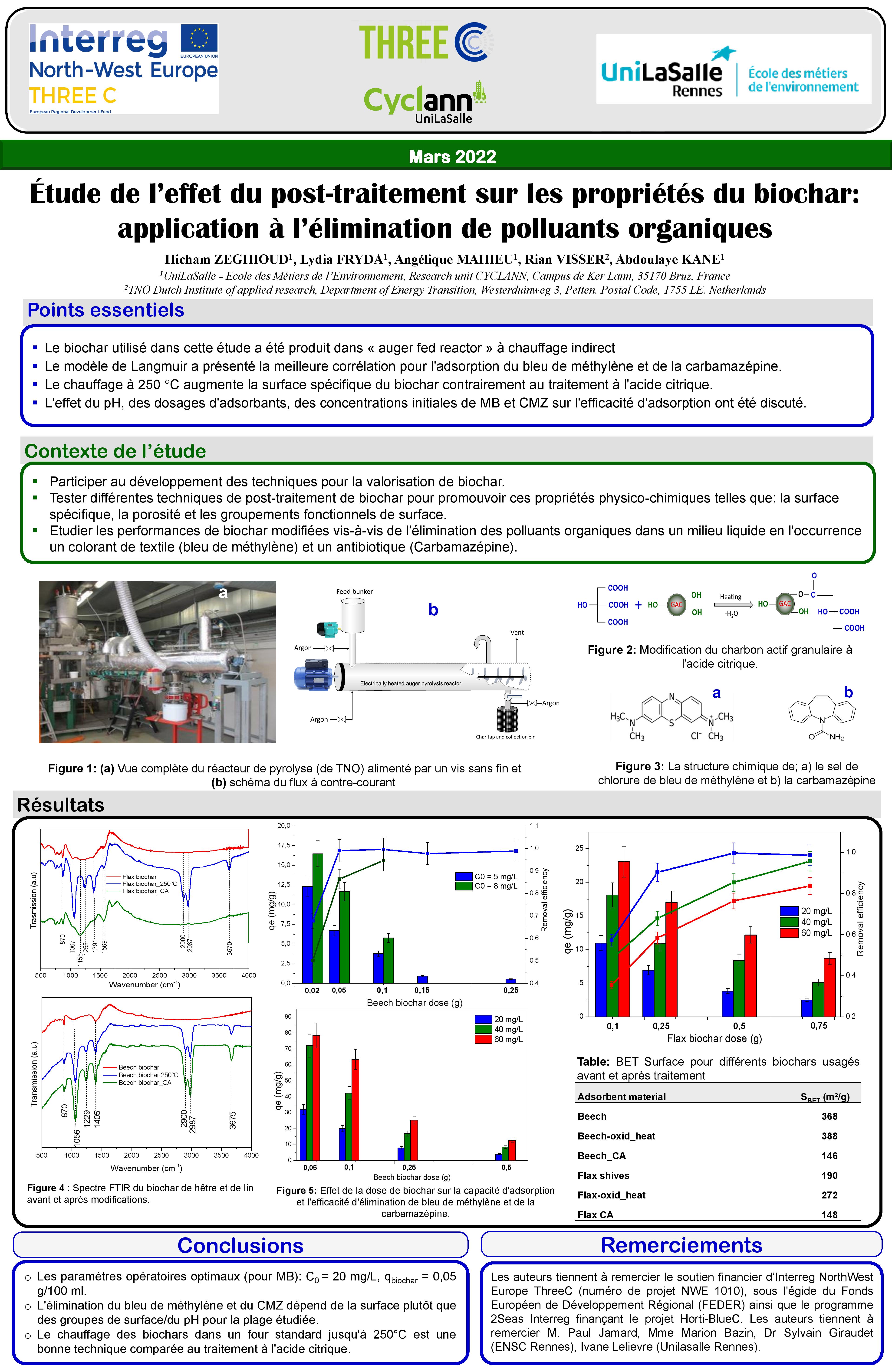
ADEME project BIOGRAFIC seed (2020-2022)
Valorization of the ashes of BIOmass as GRAnulats and FIller in Construction blocks.
Objective: the valorization of biomass boiler ashes for the elaboration of composite materials for civil engineering.
Partners: LGCgE-IUT Béthune,DALKIA-Bois Energie France,CERIB,Biallais Industries,University of Mons (Belgium).
Contact: Hayet DJELAL
Interreg Blue Print Project (2020-2022)
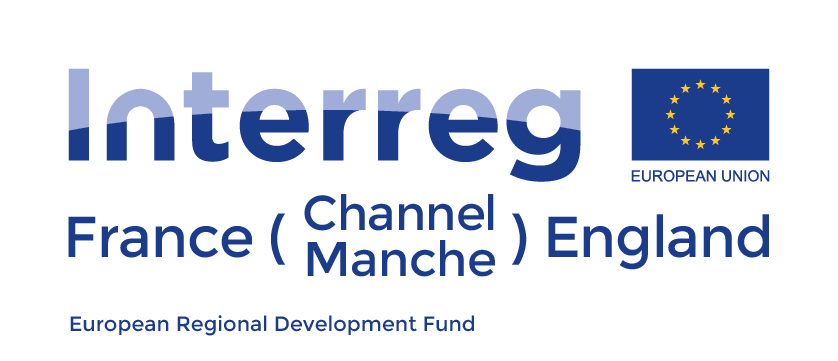 BLUEPRINT to a Circular Economy.
BLUEPRINT to a Circular Economy.
Objective:
Analysis of the management of household and similar waste within communities by providing elements of quantitative diagnosis on the flows and by formulating recommendations on the optimization of management with regard to territorial circular economy strategies.
The BLUEPRINT project has a budget of €5.6 million over 3 years, co-financed by €3.9 million from the ERDF (European Regional Development Fund).
Partners :
Essex County Council (project leader), Kent County Council, EcoWise, Anglia Ruskin University, Peterborough Environmental City Trust, Université de Picardie Jules Verne, ESITC Caen, UniLaSalle, Morlaix Communauté and Neoma Business School.
Contacts : Lucie DOMINGO, Hayet DJELAL, Thierry HENRION, Abdoulaye KANE, Mathilde MERCIER, Delphine LE MÉEC

